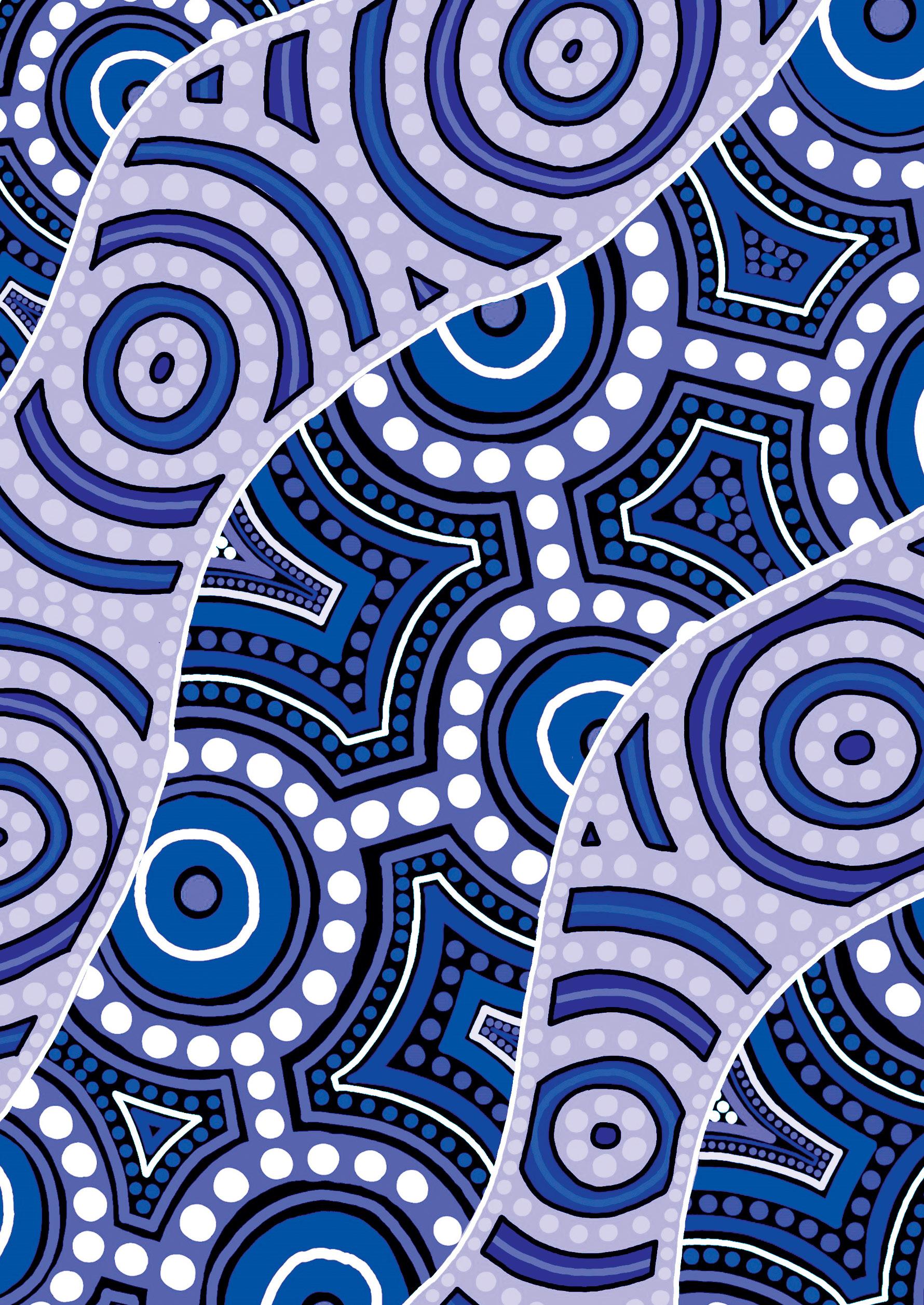

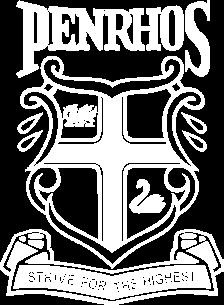
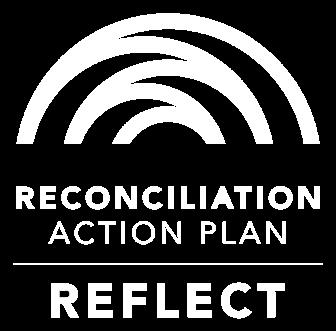
PENRHOS COLLEGE REFLECT Reconciliation Action Plan 2022 - 2023
The cover artwork depicts the non-linear journey of Reconciliation which will look different for everyone in our community. It will likely be both complex and multi-dimensional, requiring participants to pause at their own resting places along the way.
The purple colour for this artwork was chosen in reference to the colour of the official flower for the Stolen Generations. The Kimberley Stolen Generation Aboriginal Corporation website says that “the five-petal Native Cotton, Desert Rose, or Native Hibiscus was chosen by members to symbolise the scattering of the Stolen Generations and their resilience to the eugenic policies of Australia. This was initially proposed by members of the Kimberley Stolen Generation Aboriginal Corporation, and later endorsed by the National Sorry Day Committee…This KSGAC Stolen Generation flower was adopted because it is found widely across Australia and it is a survivor. Its colour denotes compassion and spiritual healing.”
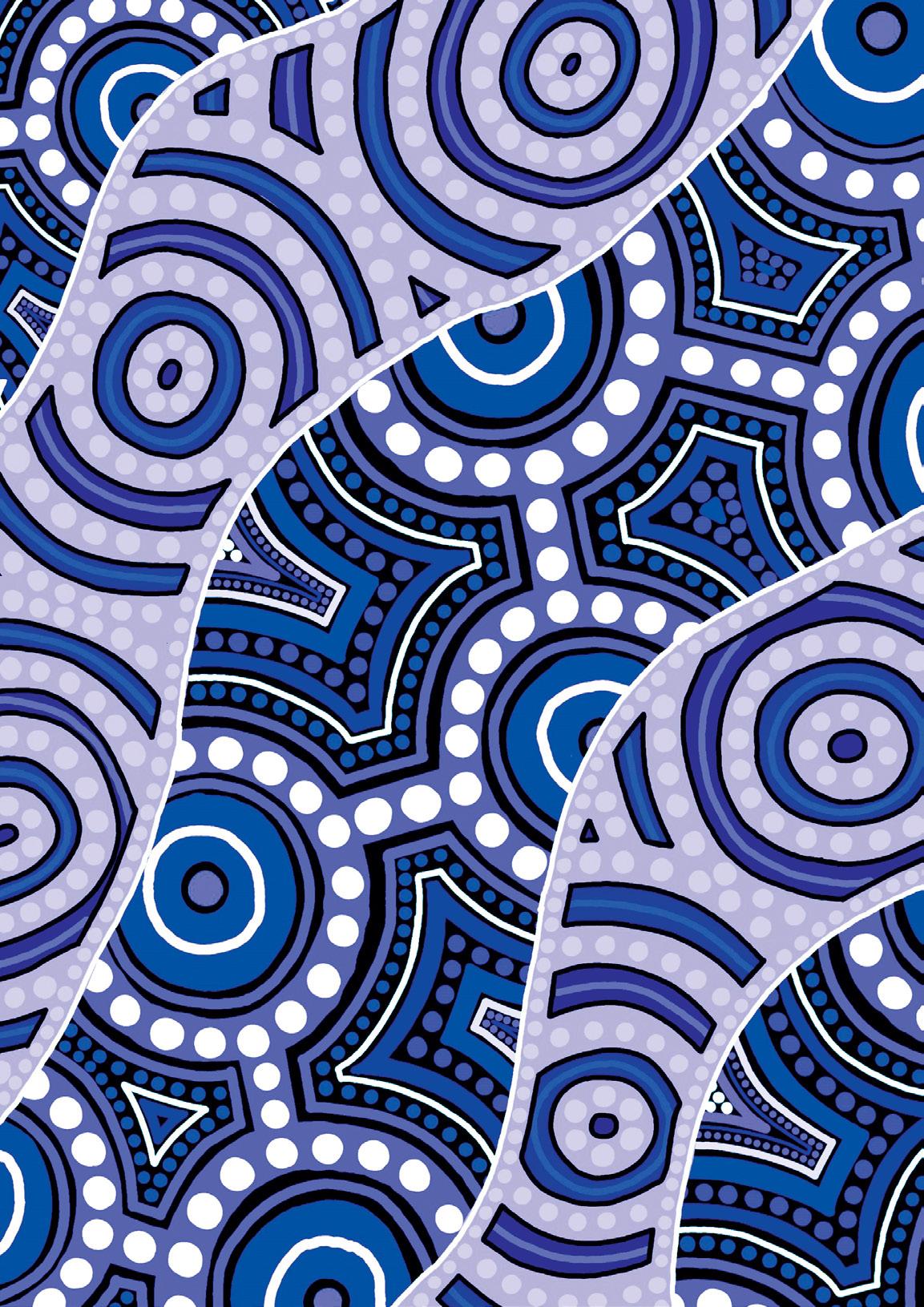
We acknowledge that the experiences of the Stolen Generations are ongoing and closely linked with all that we must learn from on our reconciliation journey. We will learn from our shared history and celebrate the strength of our ways of knowing, being and doing.
Artist: Talicia Griffin
Acknowledgement of Country 4
Vision for Reconciliation 4
RAP Working Group 5
The Uniting Church 6
Glossary of terminology 8
Reconciliation Action Plan (RAP) Actions 10
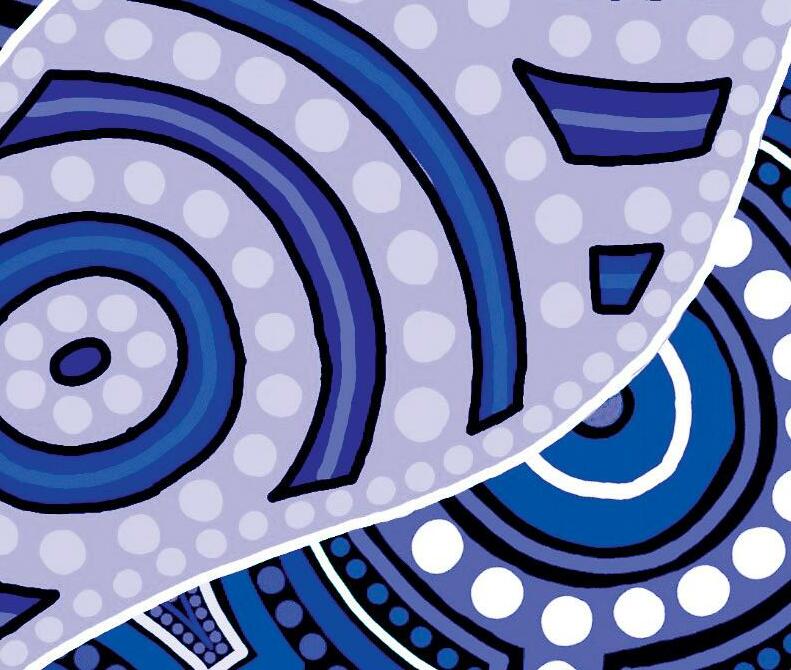
Relationships
In the classroom 10
Around the school 11 With the community 12
Respect
In the classroom 14
Around the school 15 With the community 16
Opportunities
In the classroom 18
Around the school 19 With the community 20 Links and references 22
CONTENTS
ACKNOWLEDGEMENT OF COUNTRY
Burdiya kaartdijin koora koora yeyi moortang. Nidja Whadjuk boodjak ngalak nyininy.*
Penrhos College acknowledges the Whadjuk people of the Noongar Nation as the Traditional Custodians of the land on which we work, learn and live; and we extend this acknowledgment to the Traditional Custodians of the communities across Australia that are home to Penrhos boarding families.
Aboriginal and Torres Strait Islander sovereignty has never been ceded and we acknowledge that this always was, and always will be Aboriginal land. We are privileged to learn on this Country, and from the oldest continuous living cultures in the world.
Penrhos College values and respects the unique perspectives and knowledges of all Aboriginal and Torres Strait Islander peoples within our community, and we pay our respects to Elders past and present. In the spirit of reconciliation, Penrhos College acknowledges the role of education in moving forward whilst always remembering and learning from our shared histories.
*Note: language spellings recognised throughout this document
OUR VISION FOR RECONCILIATION
Penrhos College’s collective commitment is to learn, unlearn and relearn to achieve our reconciliation goals. Our vision is to build strong inter-cultural knowledge within our community to understand and acknowledge the histories, impact and continued relevance of the past and current experiences of Aboriginal and Torres Strait Islander peoples.
We are a diverse and inclusive community, where everyone works in synergy to be a part of society’s ongoing and reciprocal journey to strengthen equality and equity. We recognise the significant contributions Aboriginal and Torres Strait Islander peoples have made and continue to make within our community.
By listening to the many different voices in our community, we will develop a shared understanding, genuine empathy and respect for past, present and future peoples.
By giving time for truth telling, this will grow our knowledge and build awareness to strengthen our community. It will allow for narratives to be told with integrity and strengthen our understanding of Australia’s true histories. This will ensure that we all feel safe and respected in sharing our stories, and promote a space for healing.
We will speak out against prejudice and ignorance.
Embracing language and connection with Country in an inclusive learning environment will nurture and create positive change. Penrhos College’s core shared values and our commitment to our collective learning journey will support our realisation of this vision.
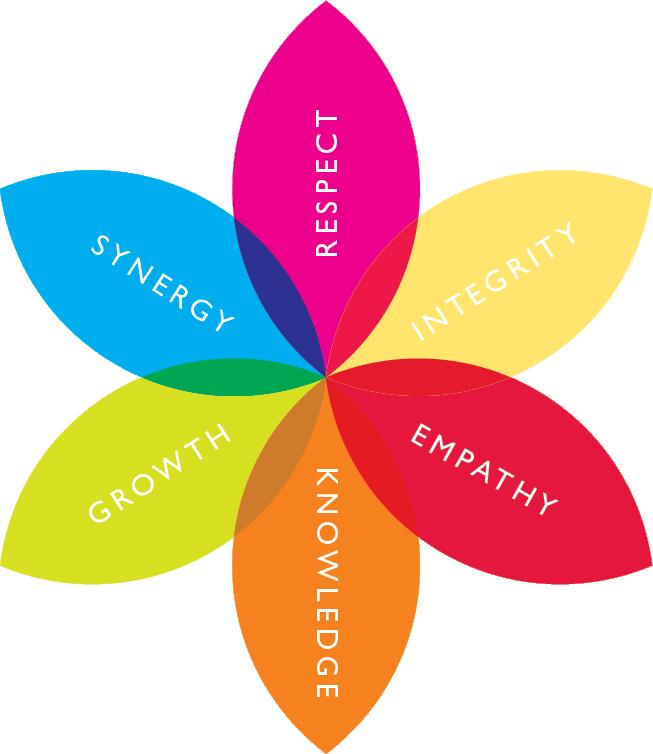
The College will foster a strong sense of belonging and pride in cultural identity for Aboriginal and Torres Strait Islander members of the Penrhos community, and all members of our College community will actively listen to the voices and aspirations of Aboriginal and Torres Strait Islander peoples.
United, we will set a path towards a future where reconciliation is a lived reality and not simply an idea.
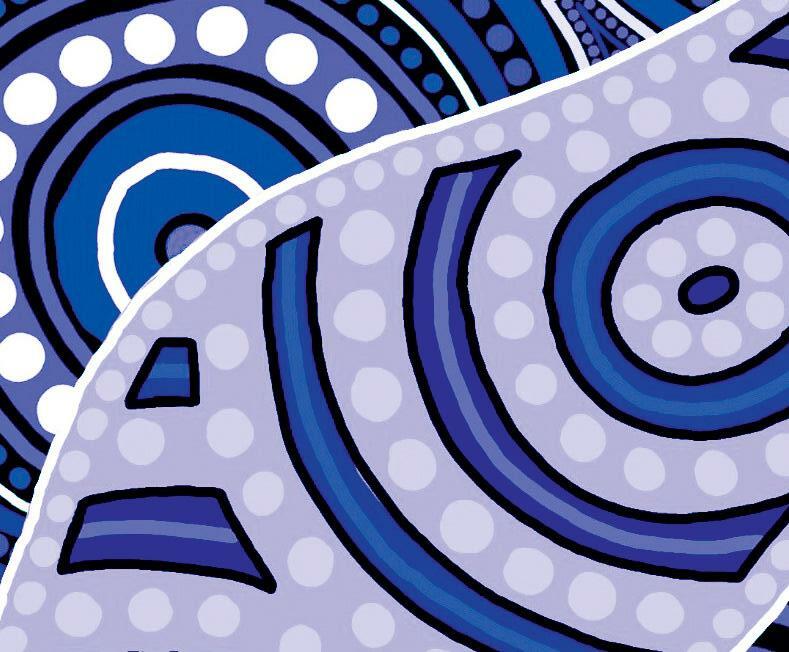
4 Penrhos College | Reflect Reconciliation Action Plan 2022 - 2023
NAME POSITION
Kalea Haran Principal
Jess O’Donnell Cultural Program Coordinator / Staff (teaching) / Alumni
Michelle Taylor Dean of Students / Alumni
Kate Gillam Assistant Dean of Students (-2021)
Rob Taylor Dean of Academic Administration (-2021)
Paul Whitfield Chaplain (current)
Claire Pickering Chaplain (-2021)
Leone Cottam-Williams Parent / Alumni / Reconciliation WA
Kylie Collard Parent
Eugene Anthony Parent
Nicole Blyth Dean of Teaching and Learning
Wayne Revitt Head of Junior School
June Benson Director People Services
Jasmine Peucker Staff (non-teaching)
Annie Messina Staff (non-teaching)/ Alumni
Sydney Marsden Staff (non-teaching)
Fiona Taylor Staff (non-teaching) (-2021)
Casey Drummond Community member/stakeholder organisation
Liv Trounce Community member/stakeholder organisation
Caroline Edwards Staff (teaching)
Keely Robinson Staff (teaching)
Tal Ashby Staff (teaching)
Alison Kalajzich Staff (teaching)
Angela Radalj Staff (teaching)
Fiona Rakimov Staff (teaching)
Grace Curtis Staff (teaching)
Sharon McCleary Staff (teaching)
Isabella Skuthorp Alumni
Erin Knight Alumni
Talicia Griffin Student
Lytoni Cheinmora Student
Anna Martin Student
Chiara Miller-Sabbioni Student
Hayleigh Duck Student
Grace Dimer Student
Cecilia Clennell Student
Charlotte Gibbons Student
Ella Boniwell Student
Ebony Ballard Student
Maddy Hooker Student
Charlize Barnett Student
Charlize Lockyer Student
Tyler Knowles Student
Janeequa Jones Student
Mariah Gower Student
Jilaya Collard Student
Jada Lockyer Student
Michelle Ninyette Student
Aaliyah Ninyette Student
Tanna Bellotti Student
We would like to thank Aunty Robyn Collard, Cultural consultant and traditional language speaker, for sharing your knowledge and recommendations with us. (Cultural consultation, June 2022)
5
RAP WORKING GROUP
Penrhos College is an all girls’ school, in the faith of the Uniting Church. We are committed to educating our students for respectful and responsible participation in an increasingly diverse and fast-evolving global community. Equally, we are committed to the promotion of justice and equity in learning, working and social environments that are affirming and inclusive, where each individual feels safe and valued.
Walking together First and Second Peoples
The Uniting Aboriginal and Islander Christian Congress (UAICC or Congress) – First Peoples, nurtured and sustained by God before the invasion, are celebrated at the very heart of what it means to be the Uniting Church in Australia (UCA).
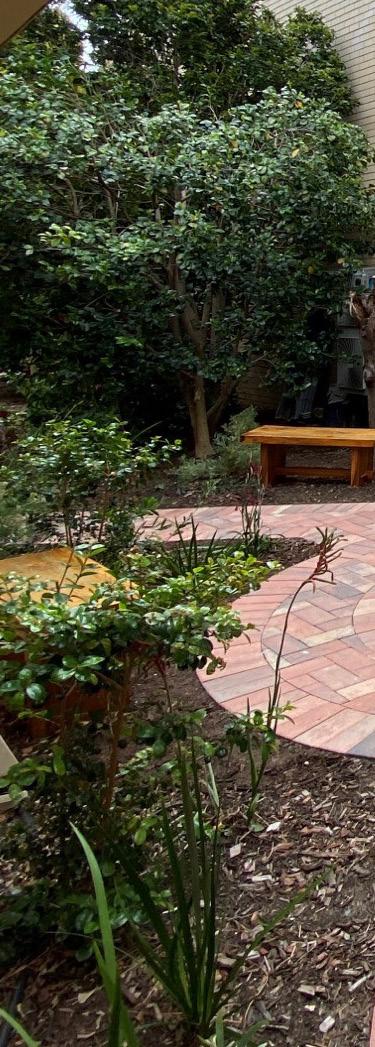
First Peoples’ sovereignty is affirmed, First Peoples have a voice in the decision-making of our Church and are empowered to live out their right to self-determination.
As First and Second Peoples of the Uniting Church, we are bound together in covenantal relationship, walking together, creating socially just and culturally safe relationships, listening and learning from one another.
6 Penrhos College | Reflect Reconciliation Action Plan 2022 - 2023
A covenantal vision for the Uniting Church in Australia
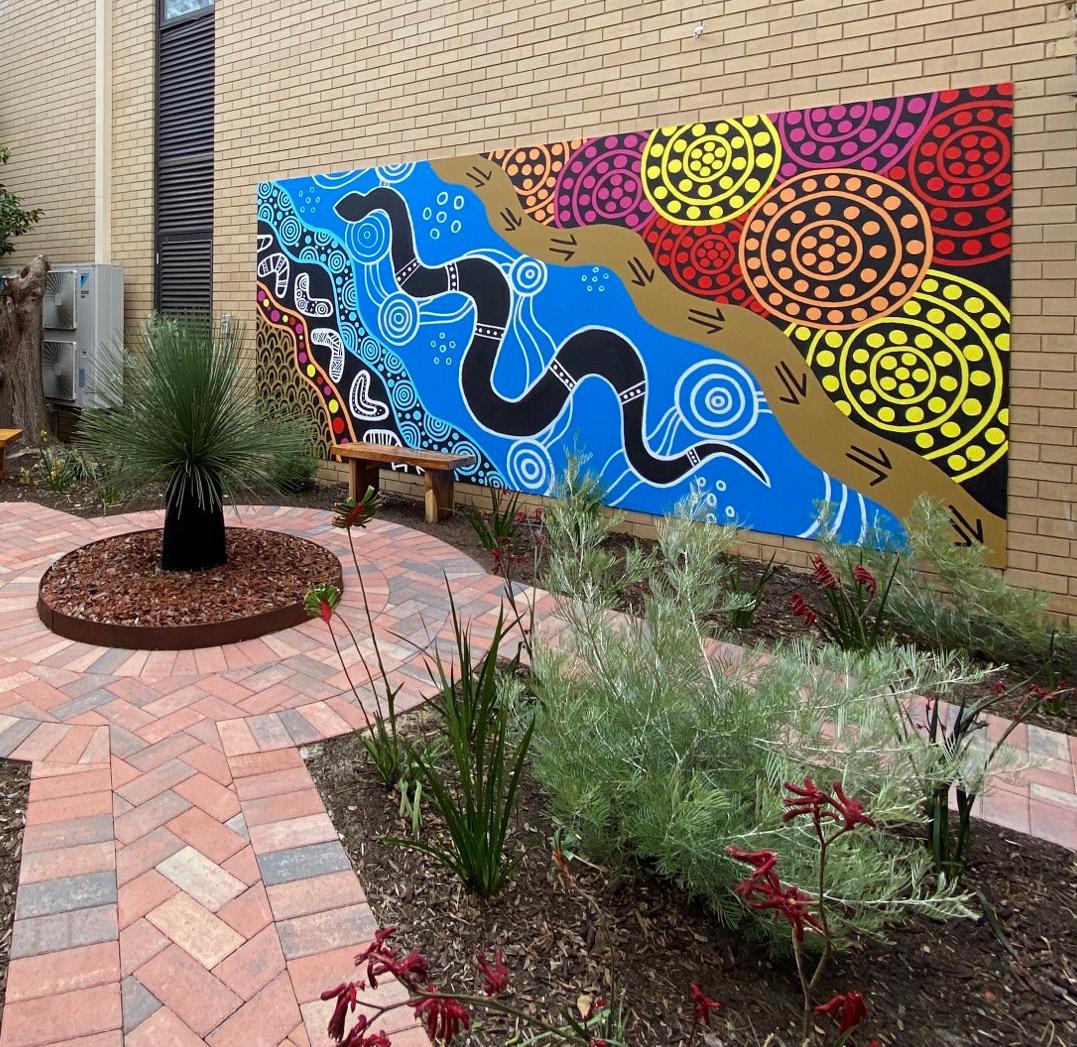
7
Mural created by Lytoni Cheinmora (primary artist) with assistance from Ngala Maya students and Year 12 General Art Class
GLOSSARY OF TERMINOLOGY USED IN THIS DOCUMENT
For the purpose of acknowledging and respecting the diversity of cultures across the continent we now call Australia, we have chosen to use the terminology preferred by our current students, which is Aboriginal and/ or Torres Strait Islander peoples, where appropriate; and Whadjuk/Noongar when referring to the Country on which our school sits. Whilst we recognise that some individuals may prefer terms such as Indigenous, or First Nations, this was not reflected within our current group of students at the time of writing this document.
Aboriginal
“the Federal Government defines an Aboriginal person as someone who:
• is of Aboriginal descent;
• identifies as an Aboriginal person; and
• is accepted as an Aboriginal person by the community in which he or she lives.
Aboriginal people comprise diverse Aboriginal nations, each with their own language and traditions and have historically lived on mainland Australia, Tasmania or on many of the continent’s offshore islands.”
Source: Australian Human Rights Comission
Torres Strait Islander
“A Torres Strait Islander person is a descendant from one of the Torres Strait Islands located to the north of mainland Queensland. ‘Torres Strait Islander’ should be used as an adjective, not as a noun.”
Source: Queensland Health
Indigenous
“…the descendants - according to a common definition - of those who inhabited a country or a geographical region at the time when people of different cultures or ethnic origins arrived… Considering the diversity of indigenous peoples, an official definition of “indigenous” has not been adopted by any UN-system body”
Source: United Nations
Elder(s)
The custodians of Aboriginal knowledge. Elders are chosen by their own communities. They are highly respected keepers of the knowledge, and pass that knowledge on to younger Aboriginal people.
Source: noongarculture.org
Peoples
‘Peoples’ (plural) refers to diverse Aboriginal and Torres Strait Islander identities/geo-cultural community groups across Australia.
Source: Narragunnawali
8 Penrhos College | Reflect Reconciliation Action Plan 2022 - 2023
Country
Country is the term often used by Aboriginal peoples to describe the lands, waterways and seas to which they are connected. The term contains complex ideas about law, place, custom, language, spiritual belief, cultural practice, material sustenance, family and identity.
Source: AIATSIS
Traditional Custodian (custodial responsibility)
An obligation that Aboriginal and Torres Strait Islander Peoples have to care for the Country/Place on which they live, even if they are not traditional owners of that Country/Place. Traditional owners have primary responsibility for Country/Place.
Source: Australian Curriculum
Welcome to Country
“Welcome to Country is delivered by Traditional Owners, or Aboriginal and Torres Strait Islander peoples who have been given permission from Traditional Owners, to welcome visitors to their Country…Welcome to Country occurs at the beginning of a formal event and can take many forms including singing, dancing, smoking ceremonies, and/or a speech.”
Source: Reconciliation Australia
Acknowledgment of Country
Acknowledging when you’re on the land of Traditional Owners is a sign of respect which acknowledges Aboriginal and Torres Strait Islander ownership and custodianship of the land, their ancestors and traditions. Both Indigenous and non-Indigenous peoples can show this form of respect.
Only the traditional owners can speak for and welcome visitors to Country or give others the authority to do so.
Source: AIATSIS
Sovereignty
“Aboriginal people in Australia have continued to argue that, just as British sovereignty did not wipe away Aboriginal title or native title, neither did it wipe away Aboriginal jurisdiction... It is this attachment to a place through ancestors and tradition that enables those of us who can claim a kind of sovereignty that predates the colonists to have a sense of place that is, at once, deeply emotional and social and political.”
Source: Marcia Langton - Agreements, Treaties and Negotiated Settlements
Noongar
The word Noongar means ‘a person of the south-west of Western Australia’, or the name for the ‘original inhabitants of the south-west of Western Australia’. While Noongar is identified as a single language, there are several ways of pronouncing it, which is reflected in the spelling: Noongar, Nyungar, Nyoongar, Nyoongah, Nyungah, Nyugah, Yungar and Noonga.
Source: noongarculture.org
NB: For continuity, we have chosen to use the spelling ‘Noongar’ within this document, as it is the most commonly agreed spelling within our current community of students who identify as Noongar.
9
GLOSSARY
RELATIONSHIPS
IN THE CLASSROOM
RAP Actions Commitment
Aboriginal and Torres Strait Islander People in the classroom
We are committed to welcoming Aboriginal and Torres Strait Islander people into our classrooms to work alongside our students and children in learning activities.
Having an Aboriginal and Torres Strait Islander presence in learning environments is vital when teaching about Aboriginal and Torres Strait Islander histories and cultures.
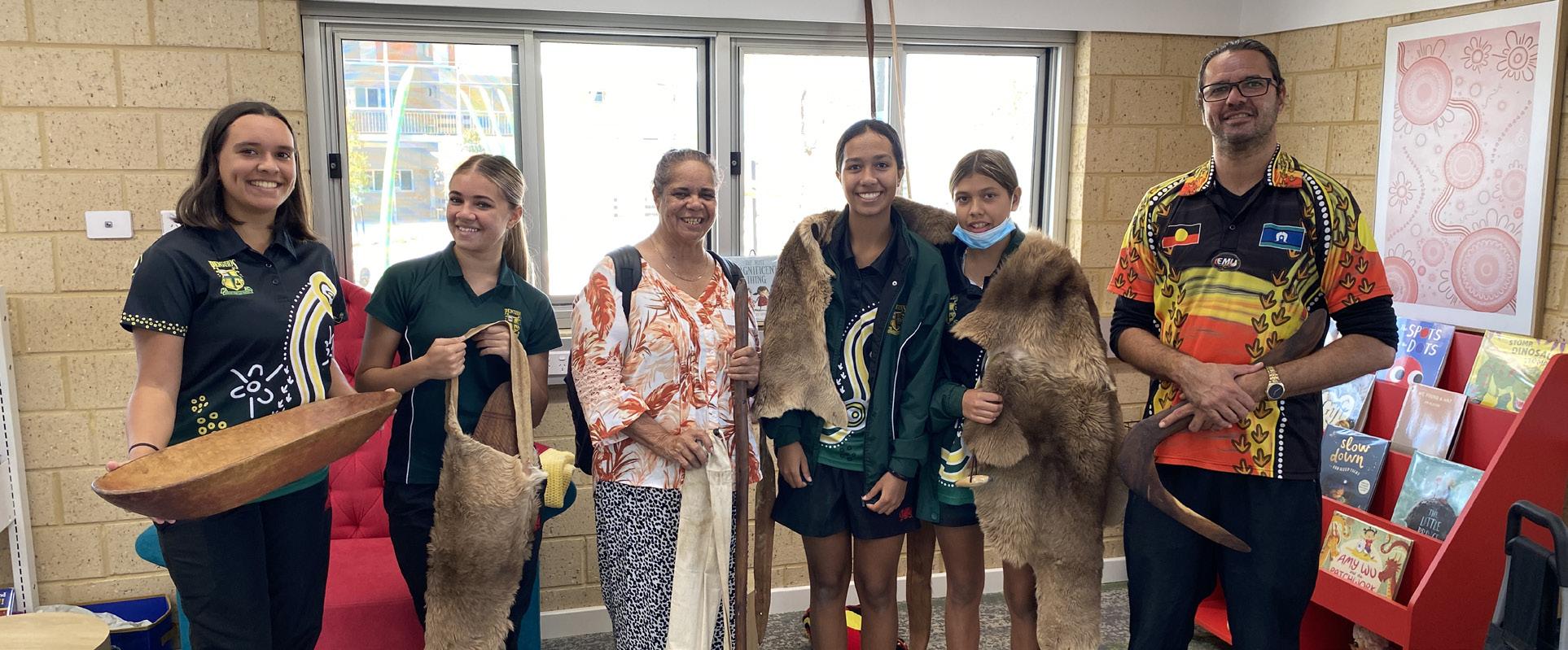
Early Years Learning FrameworkEarly Learning specific
We commit to seeking out meaningful connections between our vision and plans for reconciliation and the principles, practices and outcomes of the Early Years Learning Framework. Establishing a strong relationship between the two will ensure reconciliation is meaningfully embedded in everyday early learning environments.
Opportunities for Aboriginal and Torres Strait Islander students and children
We commit to providing opportunities for our Aboriginal and Torres Strait Islander students to celebrate their Cultural identities. These opportunities positively impact the wellbeing of Aboriginal and Torres Strait Islander students and children, and create shared pride for Aboriginal and Torres Strait Islander cultures, contributions, identities and histories in the wider school community.
Inclusive language
We commit to providing opportunities for all staff and students to develop an understanding of inclusive language, and to creating a culture where use of this is expected.
10 Penrhos College | Reflect Reconciliation Action Plan 2022 - 2023
RAP Actions Commitment
Aboriginal and Torres Strait Islander representation on committees Cultural Competence for Staff
We commit to inviting Aboriginal and Torres Strait Islander staff, parents/ carers and community members to be active representatives on our school’s committees.
We commit to ensuring Aboriginal and Torres Strait Islander perspectives inform decision-making processes by respecting the experiences and knowledge that Aboriginal and Torres Strait Islander peoples can bring to our committees.
THE SCHOOL
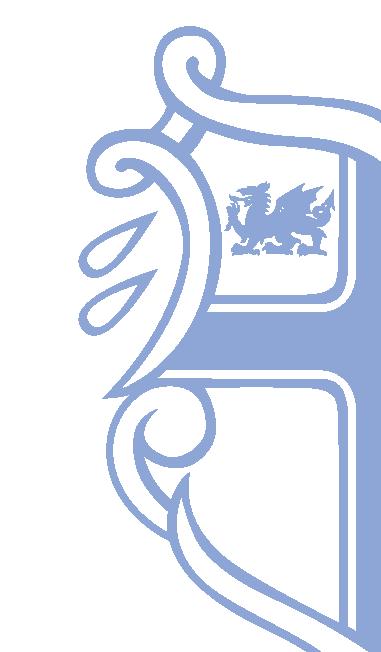
RELATIONSHIPS
Elders and Traditional Owners Share Histories and Cultures
We are committed to forging a meaningful and ongoing relationship with local Aboriginal and Torres Strait Islander Elders, and people recognised in their community as Traditional Owners. We hope this relationship can be of mutual benefit, and that our local Elders and Traditional Owners will feel safe, and confident, to share their historical and cultural knowledge with our staff, students and children
We will reflect on our current level of Cultural competence and provide staff with a range of opportunities to build and extend their knowledge and understanding of Aboriginal and Torres Strait Islander cultures. We also commit to supporting staff to independently seek out and participate in a variety of cultural awareness experiences that assist them on their own journey of understanding.
Reconciliation Projects
Our school will collaborate on projects that visibly and authentically embed Aboriginal and Torres Strait Islander histories and cultures in learning programs and the physical environment.
Through this culture of collaboration across the school and with the community, we commit to creating an environment where young people, staff and community members acknowledge, respect and experience connection to the First Australians.
AROUND
RAP Actions Commitment
Welcome to Country Create Stakeholder list
Celebrate National Reconciliation Week Build relationships with community
Where appropriate, significant events at our school commence with a Welcome to Country. Protocols for welcoming visitors to Country have been a part of Aboriginal and Torres Strait Islander cultures for thousands of years. By incorporating these protocols into formal events and important occasions, we recognise Aboriginal and Torres Strait Islander peoples as the First Australians and Custodians of their Land.
Our school community celebrates National Reconciliation Week (NRW) which is held from 27 May to 3 June each year by talking about reconciliation in the classroom and around the school, and celebrating with the community. NRW is a time for all Australians to learn about our shared histories, cultures and achievements and to explore how each of us can join the national reconciliation effort.
We will develop and maintain a stakeholder list that reflects our current and future working relationships with members of the community who are committed to working collaboratively to drive reconciliation initiatives.
We commit to building relationships with our local Aboriginal and Torres Strait Islander community that are built on mutual respect, trust and inclusiveness. We value these relationships and their role in helping to create opportunities for Aboriginal and Torres Strait Islander and nonIndigenous staff, students, children and community members.
Cultural competence for students and children
We will develop our everyday program to ensure it provides children and students with explicit opportunities to build their knowledge and understanding of Aboriginal and Torres Strait Islander cultures, within and beyond the classroom. This commitment extends to the inclusion of cultural competence principles, fostered in teachers and educators, in the ethos of our classrooms and across our school.
Family and community room
We commit to establishing a space in our school for Aboriginal and Torres Strait Islander families and community members to catch up and have a cup of tea, meet with staff, students and children, hold meetings or get together with other community members.
12 Penrhos College | Reflect Reconciliation Action Plan 2022 - 2023
RELATIONSHIPS WITH THE COMMUNITY
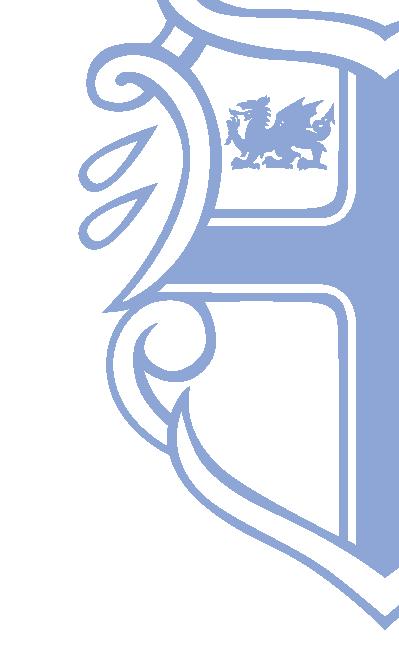
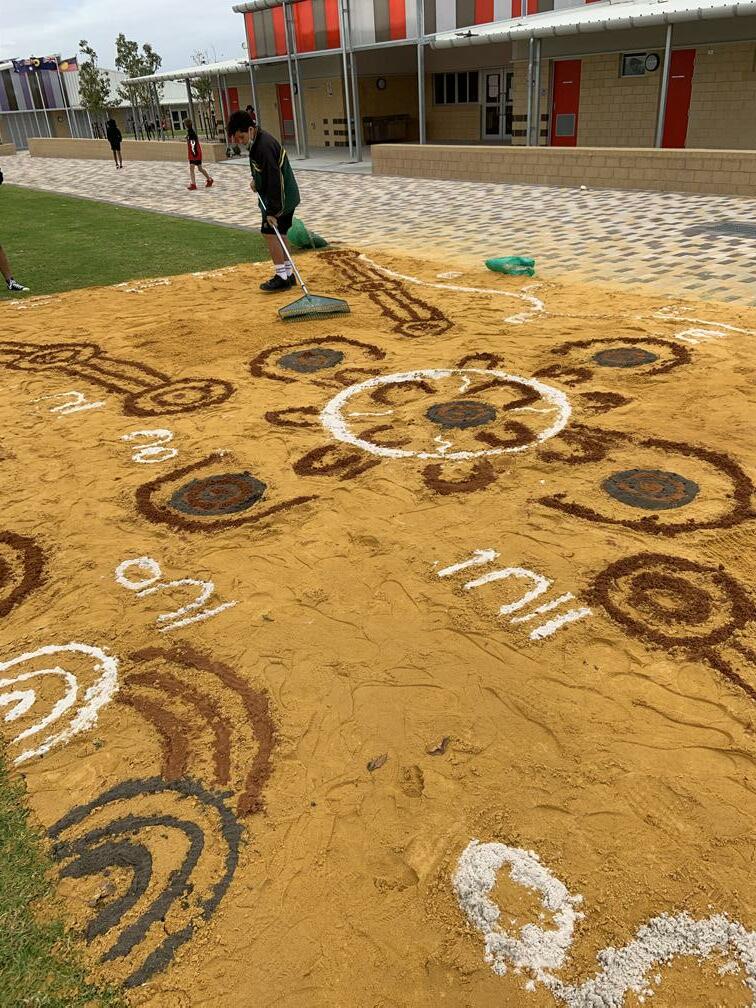
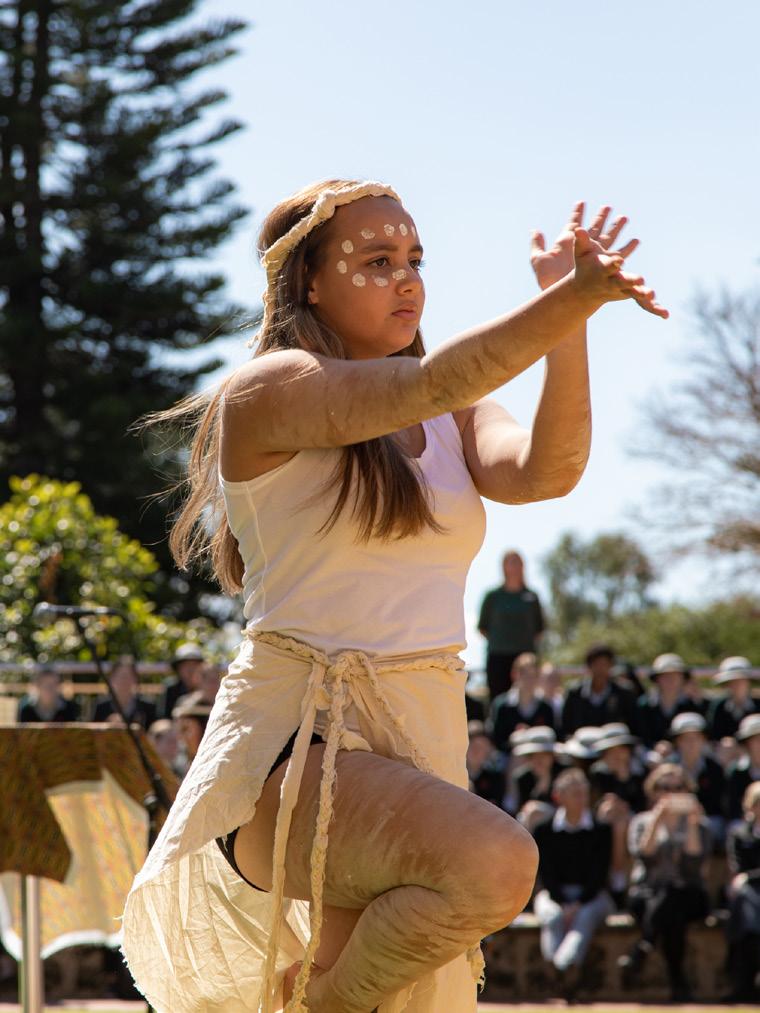
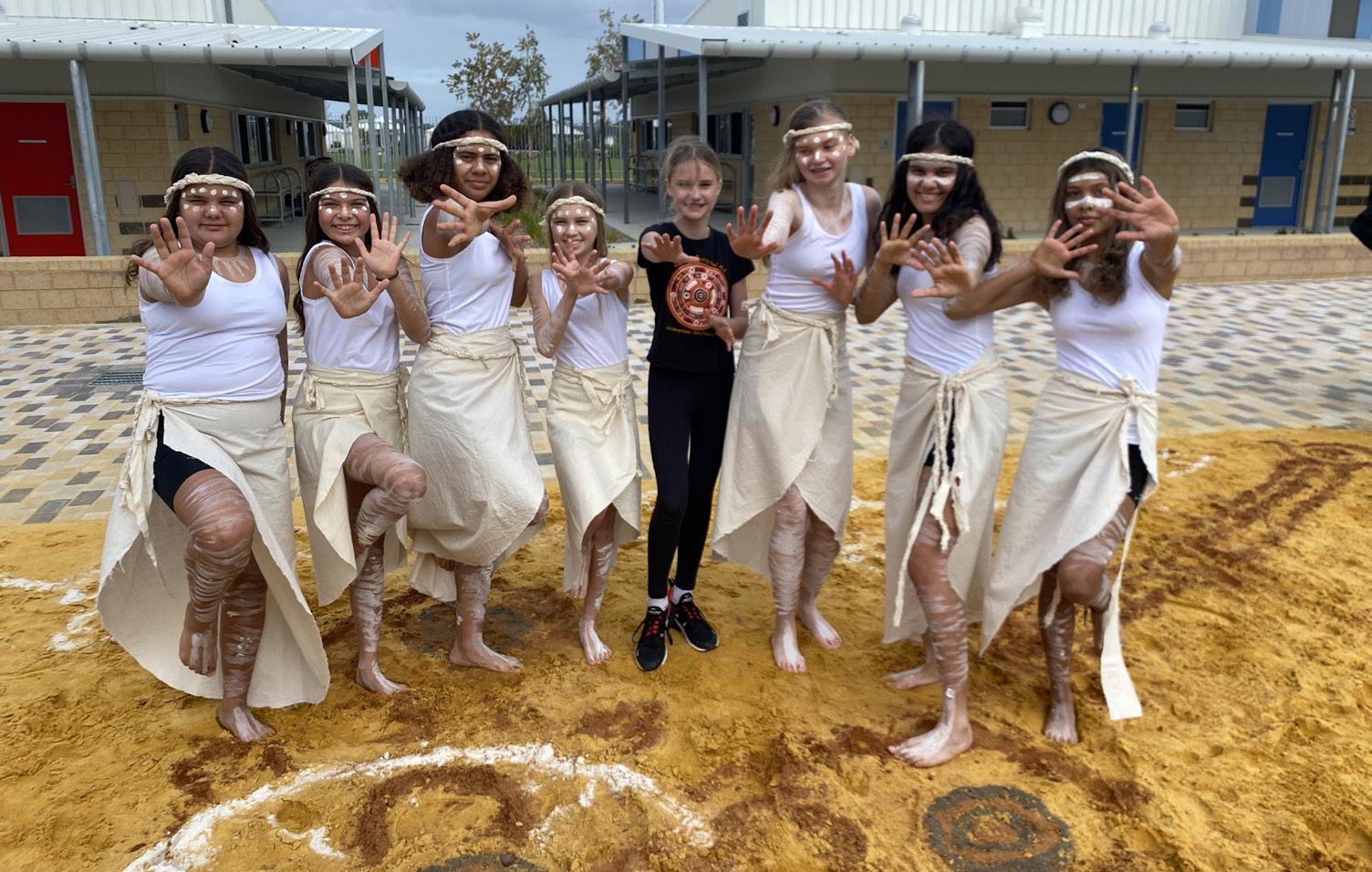
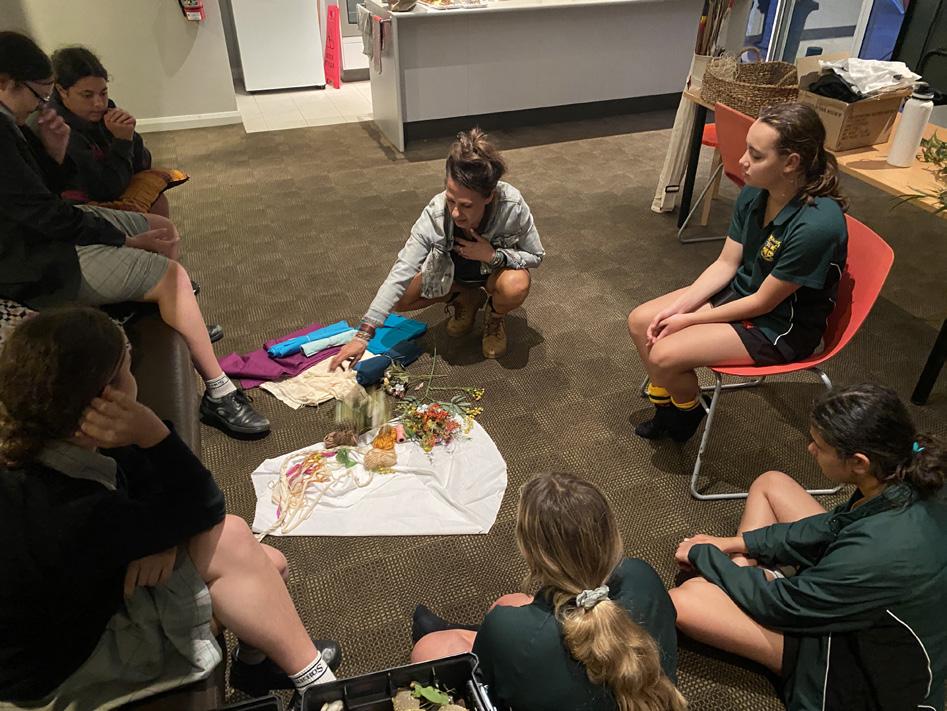
13
IN THE
RAP Actions Commitment
Teach about Reconciliation
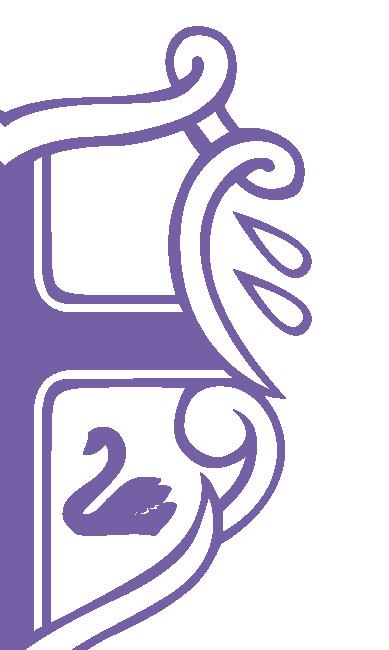
Our school community is committed to learning about reconciliation in Australia. Having an understanding of the concept, history and progress of reconciliation is an important part of continuing the reconciliation journey. This understanding also helps to strengthen engagement with our school’s RAP by positioning it within the broader story of reconciliation in Australia.
Teach about days of national significance
We commit to incorporating nationally significant days for Aboriginal and Torres Strait Islander peoples and reconciliation into our curriculum to increase knowledge of Aboriginal and Torres Strait Islander histories, cultures, contributions and contemporary issues. We also commit to including Aboriginal and Torres Strait Islander perspectives when teaching about other national days, such as 26 January (Australia Day) and ANZAC Day.
Explore current affairs and issues
We are committed to raising awareness of current affairs and issues in the public domain that are of particular significance to Aboriginal and Torres Strait Islander peoples and the process of reconciliation. This will be done through curriculum delivery, policies and procedures, and will be integrated into the ethos of our school.
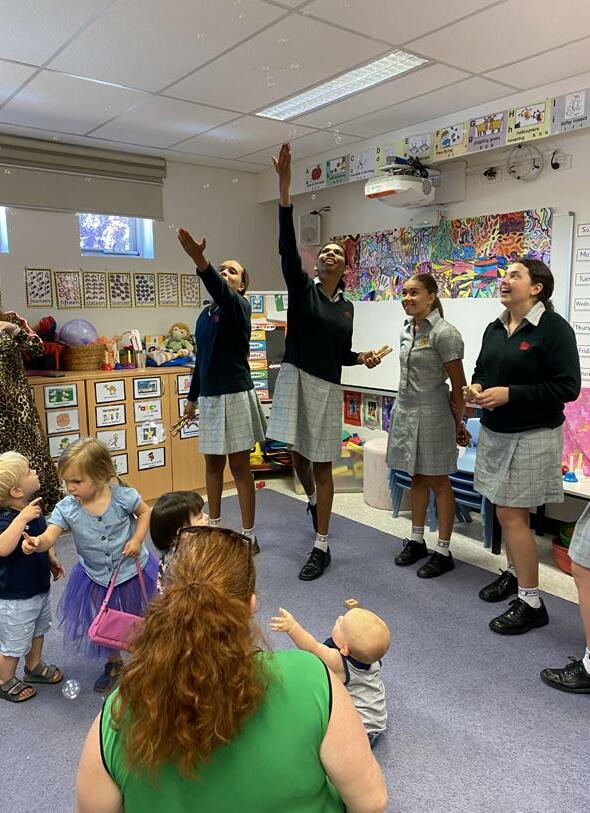
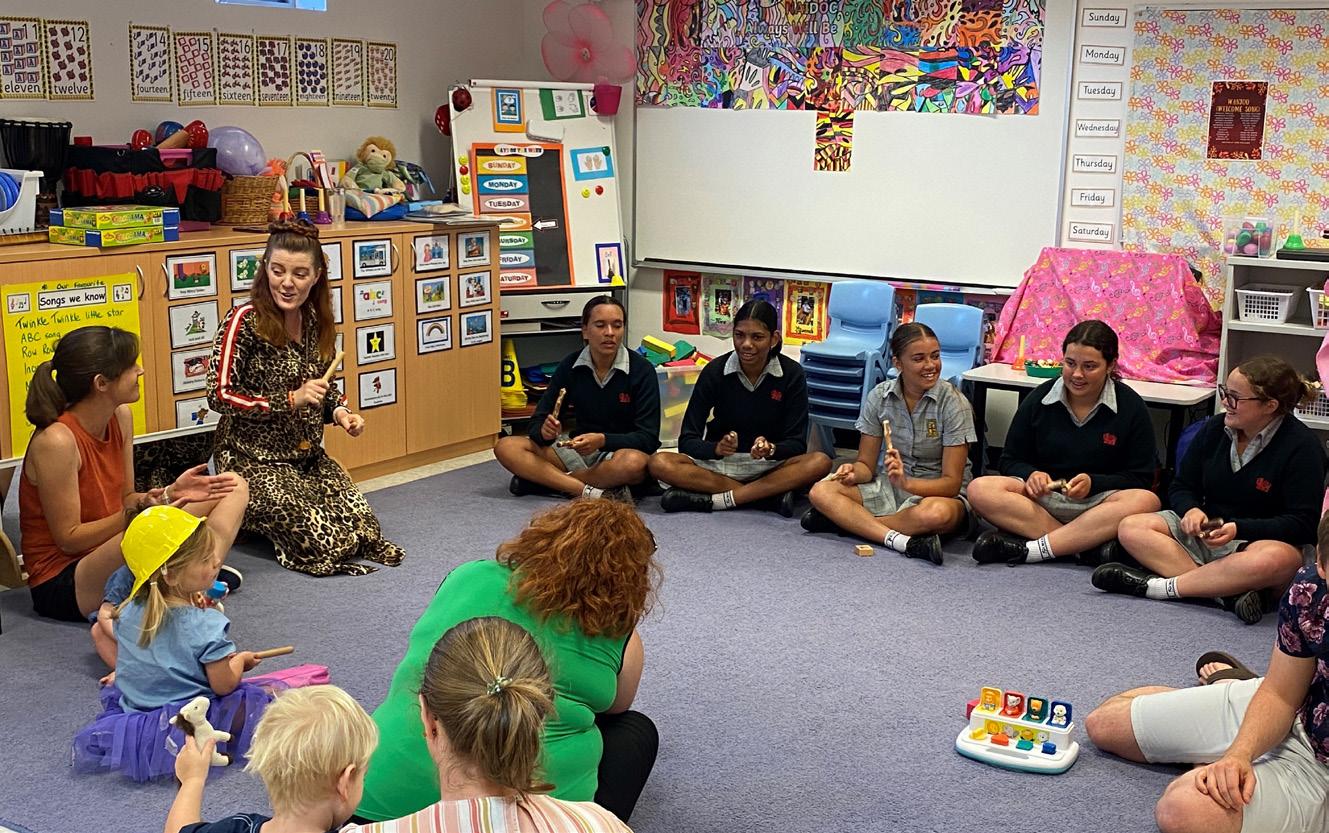
| Reflect Reconciliation Action Plan 2022 - 2023
RESPECT
CLASSROOM
RAP Actions Commitment
Acknowledgement of Country
Our school recognises the continuing connection of Aboriginal and Torres Strait Islander peoples to the Country on which we live, work, learn and grow. All staff and students have the opportunity to show respect to Traditional Owners and Custodians by regularly conducting an Acknowledgement of Country at meetings and events throughout the year.
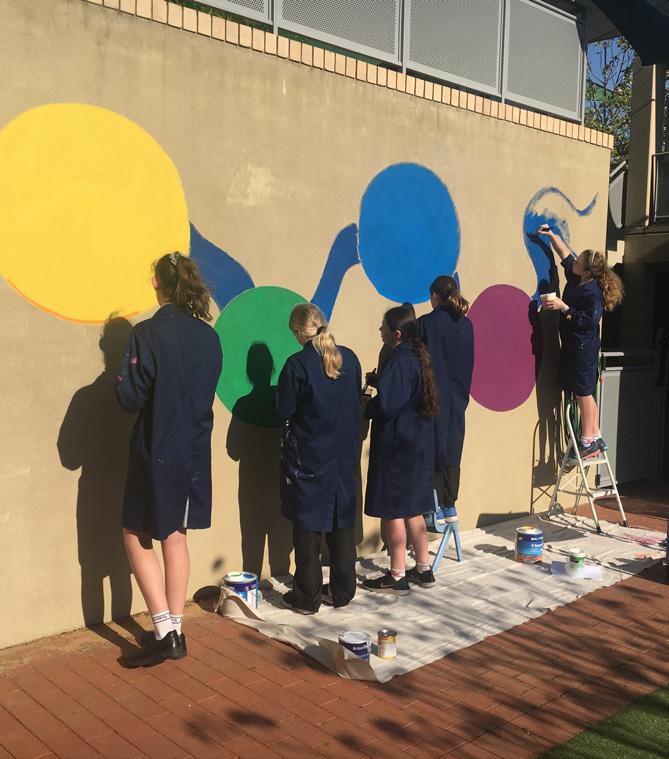
Visibly demonstrate respect for Aboriginal and Torres Strait Islander Cultures
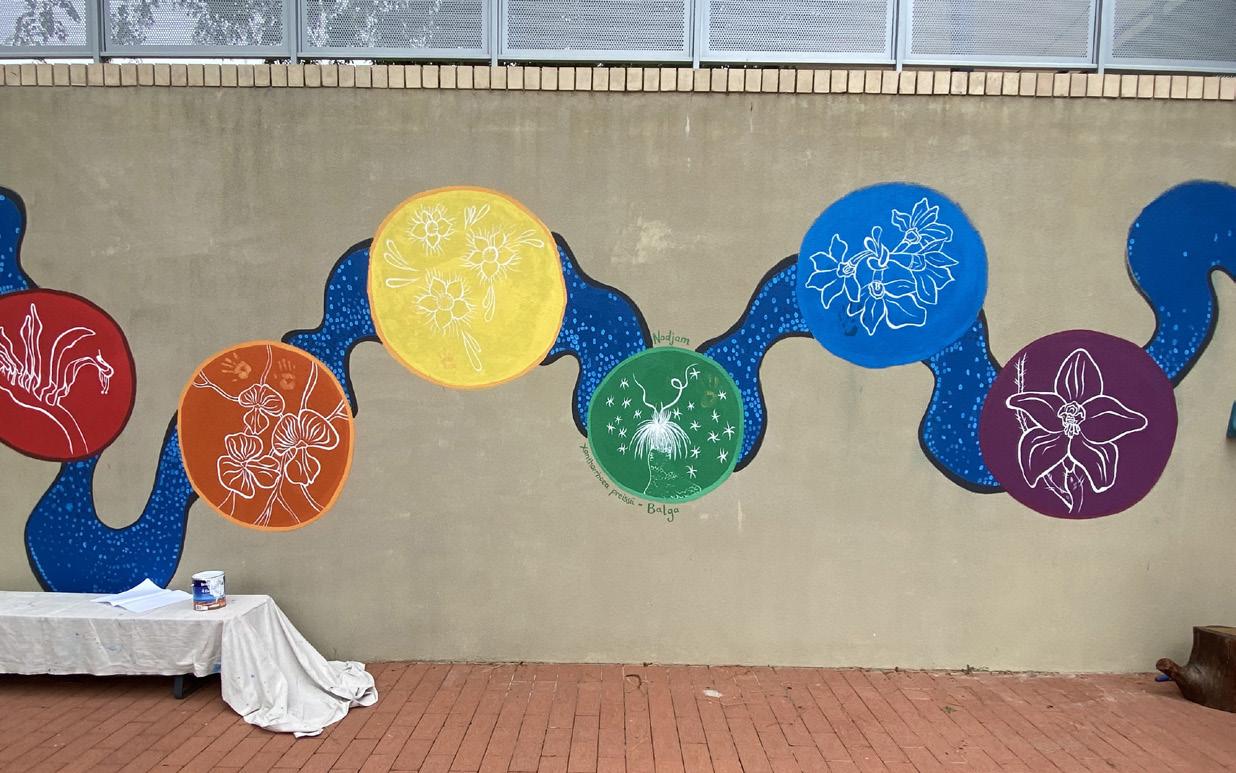
We commit to demonstrating our respect for Aboriginal and Torres Strait Islander histories and cultures in the physical environment of our school. We understand that making our respect visible in the learning environment through the incorporation of meaningful, relevant and culturally appropriate art, artefacts and symbolism reinforces our work toward reconciliation. It also makes our intentions and actions clear to our students, parents and the broader community.
Care for Country
We commit to actively connecting with, and caring for, the Country/ place on which our school stands. This involves respectfully learning about Aboriginal and Torres Strait Islander perspectives, philosophies and practices about caring for Country/place, as well as physically demonstrating respect for the skies, waterways and Land on which we live and learn. We will consider First Nations perspectives as part of broader sustainability plans, policies and practices. This will reinforce the meaningful and continuous connections Aboriginal and Torres Strait Islander peoples have continued to have with Country/place since time immemorial, as well as provide positive opportunities for all members of our educational community to become socially and environmentally responsible citizens who display a growing awareness of the importance of First Nations land management and sustainability.
15 RESPECT AROUND THE SCHOOL
WITH THE
RAP Actions Commitment
Celebrate days of national significance

We commit to organising and participating in events to celebrate or commemorate days/weeks of national significance for Aboriginal and Torres Strait Islander peoples and the reconciliation movement to show our pride in, and respect for, Aboriginal and Torres Strait Islander histories, cultures and contributions. We also commit to including Aboriginal and Torres Strait Islander perspectives when we commemorate other national days, such as January 26 (Australia Day) and Anzac Day.
Aboriginal and Torres Strait Islander flags RAP launch
Our school flies or displays the Aboriginal and Torres Strait Islander flags as a demonstration of our pride and respect for the histories, cultures and contributions of Australia’s First Peoples. Flying or displaying the flags promotes a sense of community partnership and a commitment toward reconciliation.
Physical acknowledgement of Country
We are committed to raising awareness of current affairs and issues in the public domain that are of particular significance to Aboriginal and Torres Strait Islander peoples and the process of reconciliation. This will be done through curriculum delivery, policies and procedures, and will be integrated into the ethos of our school.
Our school is proud to launch our RAP at an event that recognises the efforts of the working group and celebrates our school or service’s commitment to reconciliation. We will use our RAP launch event to inform the wider community about our RAP and the many different ways they can get involved and take action toward reconciliation.
Take action against racism
Racism can have serious negative consequences for the people who experience it, for those who witness it, and for wider society. When racism is properly understood it is easier to overcome. We commit to building awareness of what racism is, the impacts of racism and how to respond effectively when it occurs through an anti-racism strategy tailored to the needs of our school.
| Reflect Reconciliation Action Plan 2022 - 2023
RESPECT
COMMUNITY
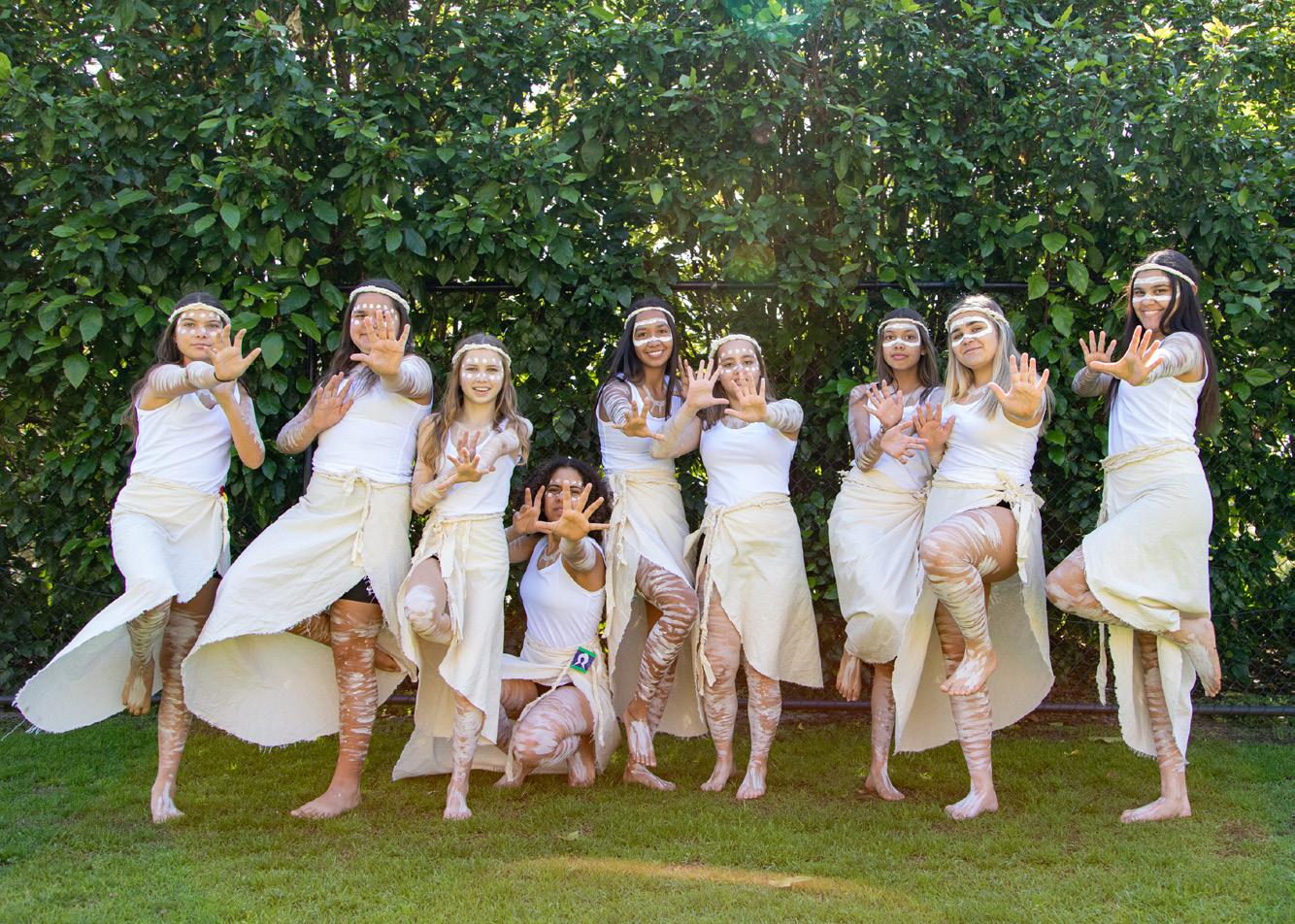
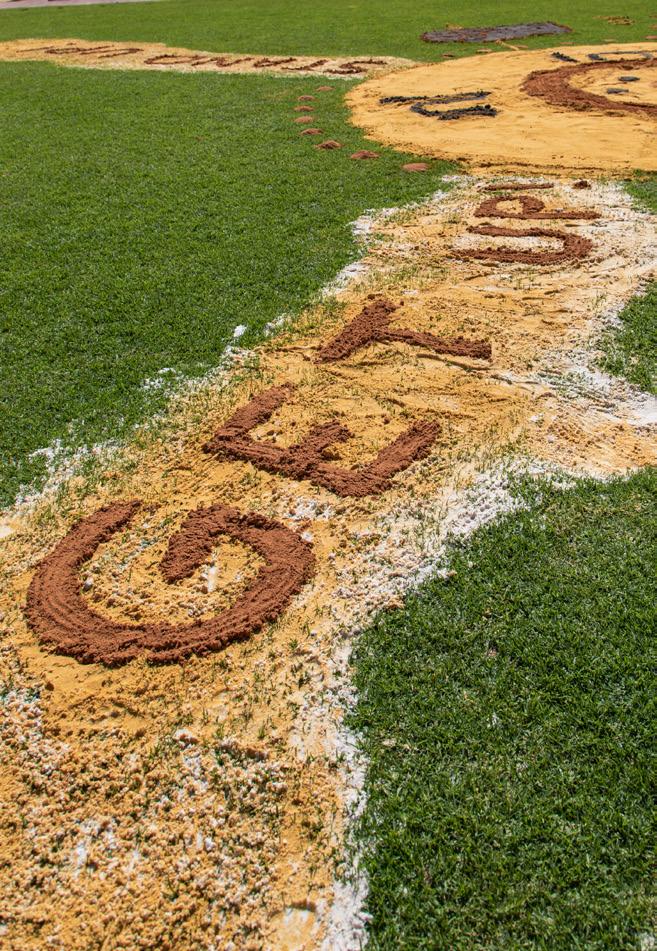
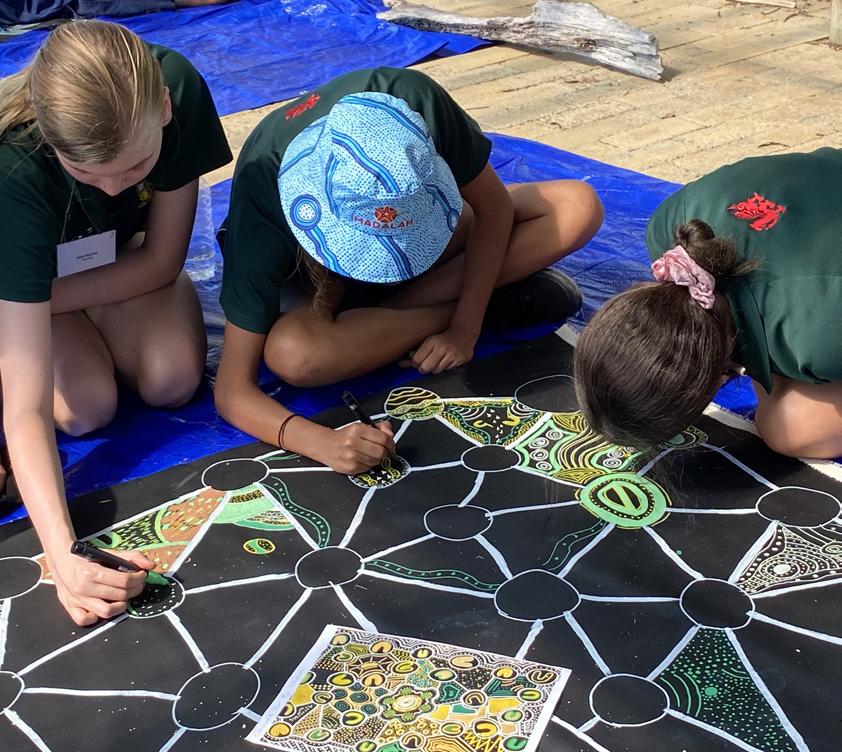
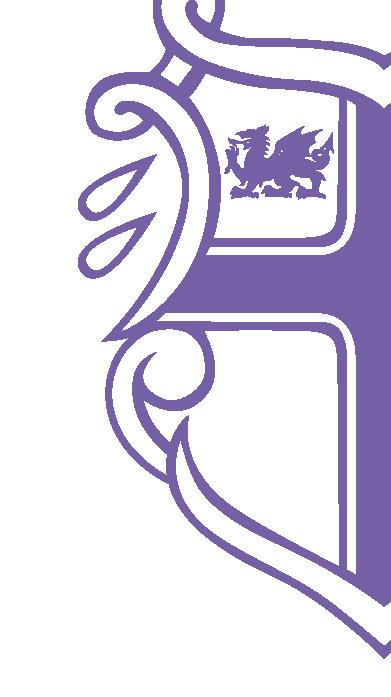
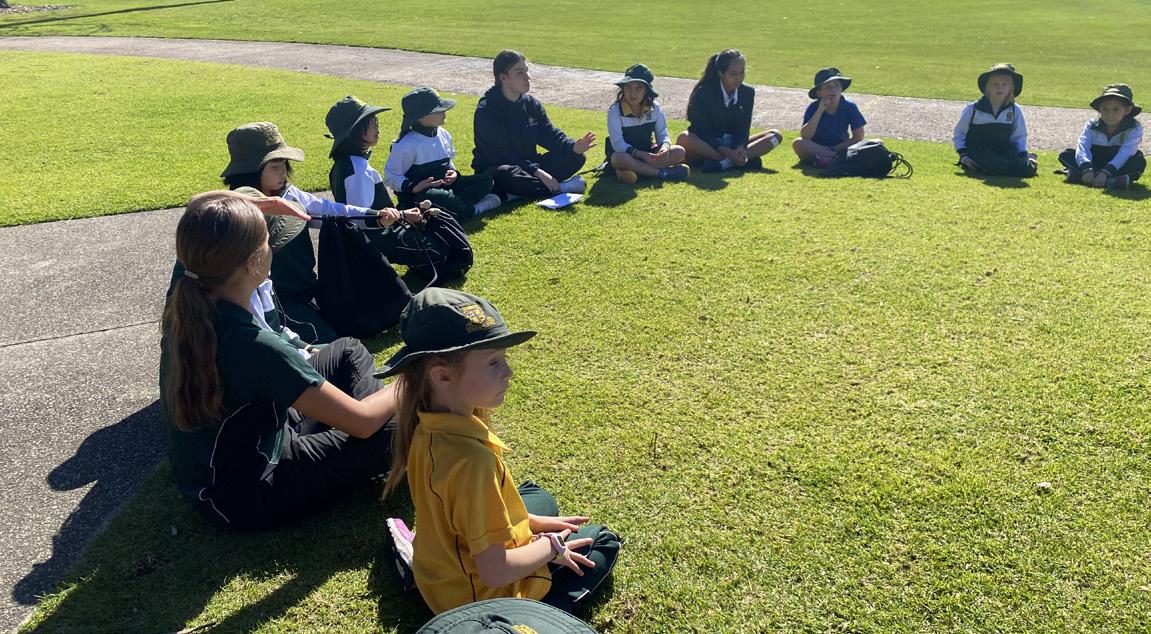
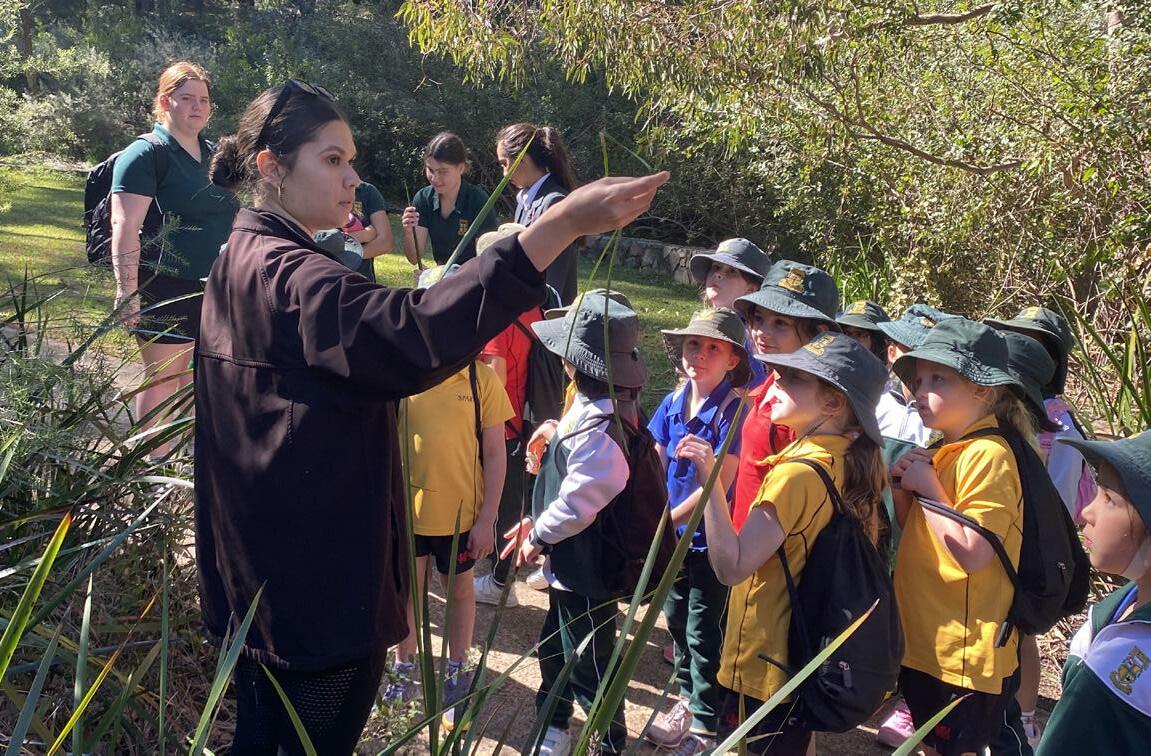
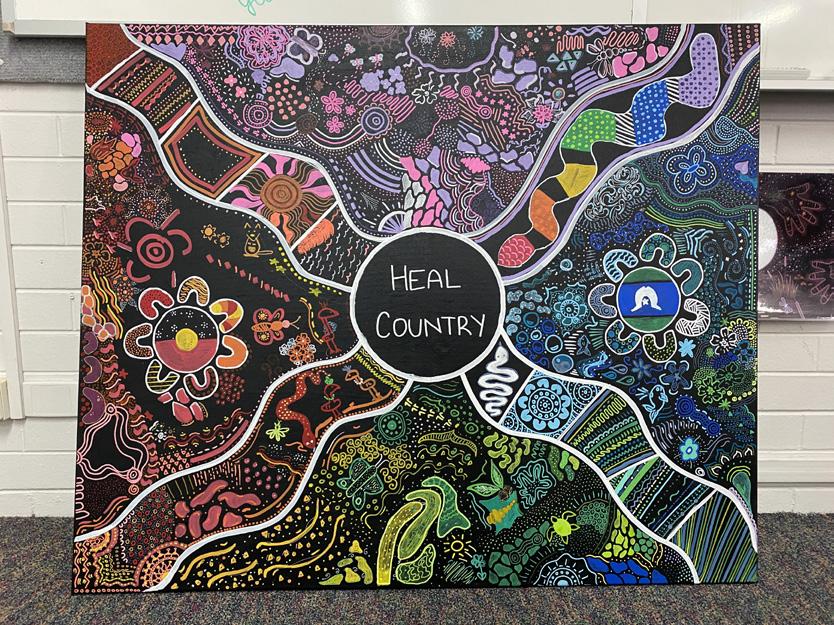
17
OPPORTUNITIES IN THE CLASSROOM
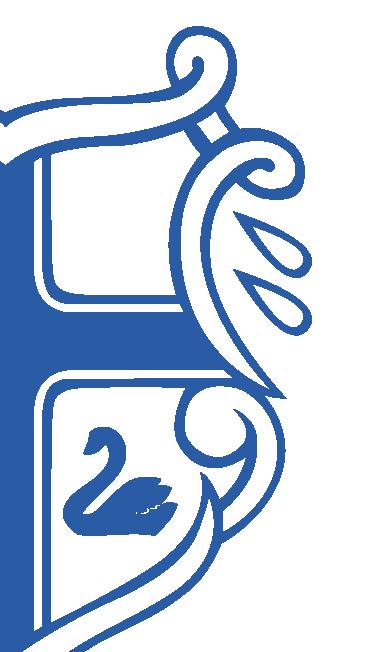
RAP Actions Commitment
Embed crosscurriculum priorityschool specific Australian professional standards for teachersschool specific
All staff from across the school are supported to understand and embed the Australian Curriculum cross-curriculum priority Aboriginal and Torres Strait Islander Histories and Cultures in the curriculum. The crosscurriculum priority is considered in the development of units, lesson plans and resources in all learning areas and across all year levels.
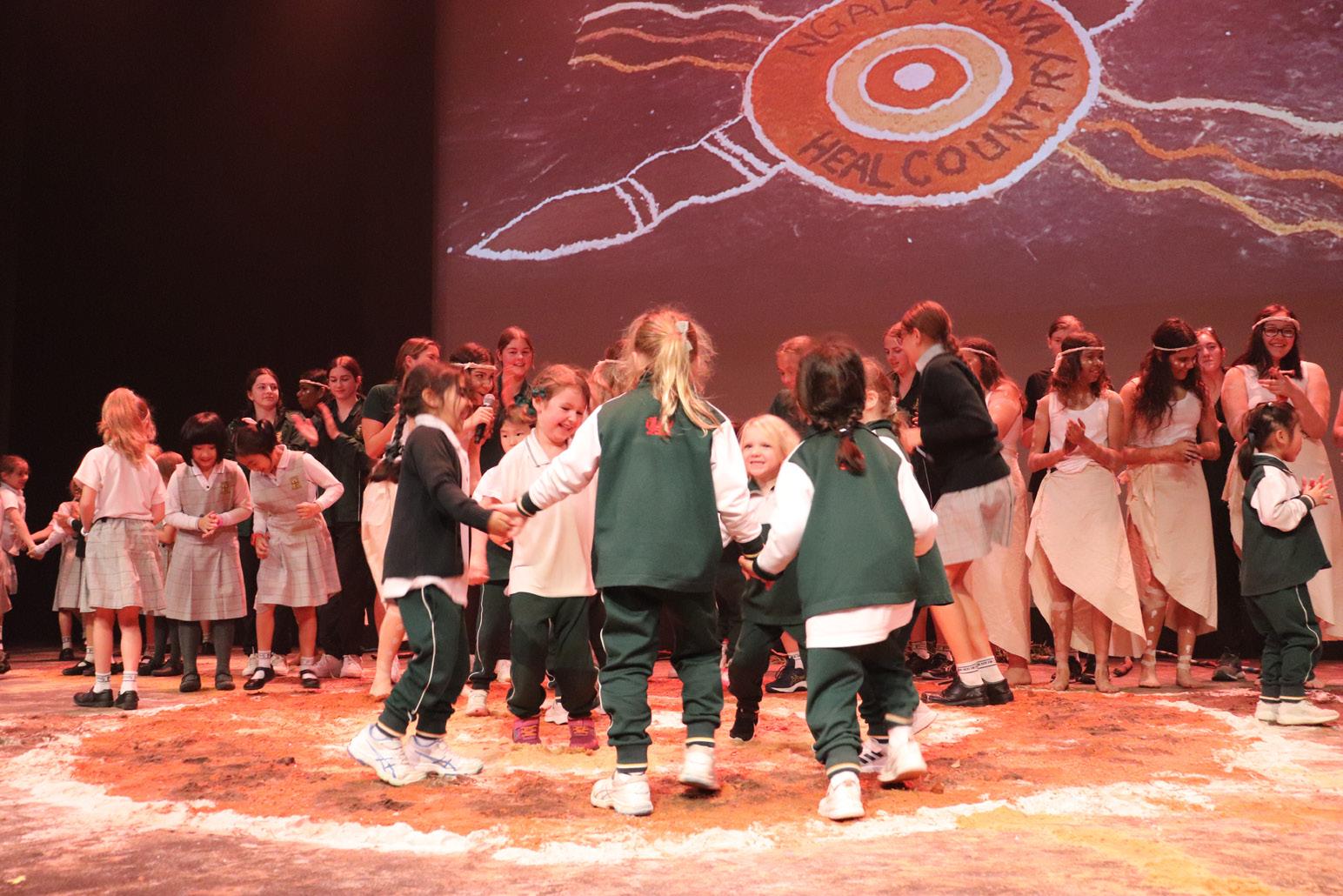
Curriculum planning
Embedding Aboriginal and Torres Strait Islander histories and cultures in curriculum planning, development and evaluation processes is a key and ongoing consideration across all year levels and learning areas. Curriculum documents have or will be audited to identify the extent to which Aboriginal and Torres Strait Islander histories, cultures and contributions are already embedded, and to identify opportunities for strengthening the representation of this content in the curriculum.
All teachers are supported to understand and meaningfully engage with the Australian Professional Standards for Teachers, specifically Focus Area 2.4: ‘Understand and respect Aboriginal and Torres Strait Islander people to promote reconciliation between Indigenous and non-Indigenous Australians’.
| Reflect Reconciliation Action Plan 2022 - 2023
RAP Actions Commitment
Inclusive policies
All staff in our school are aware of policies that refer specifically to improving educational outcomes for Aboriginal and Torres Strait Islander people and increasing knowledge of, and respect for, Aboriginal and Torres Strait Islander histories and cultures in Australia. We have a plan in place to ensure all staff comply with these policies in their daily practice. Our internal policies have been, or will be, amended to ensure they are also inclusive of Aboriginal and Torres Strait Islander peoples and increase knowledge of Aboriginal and Torres Strait Islander histories and cultures in Australia.
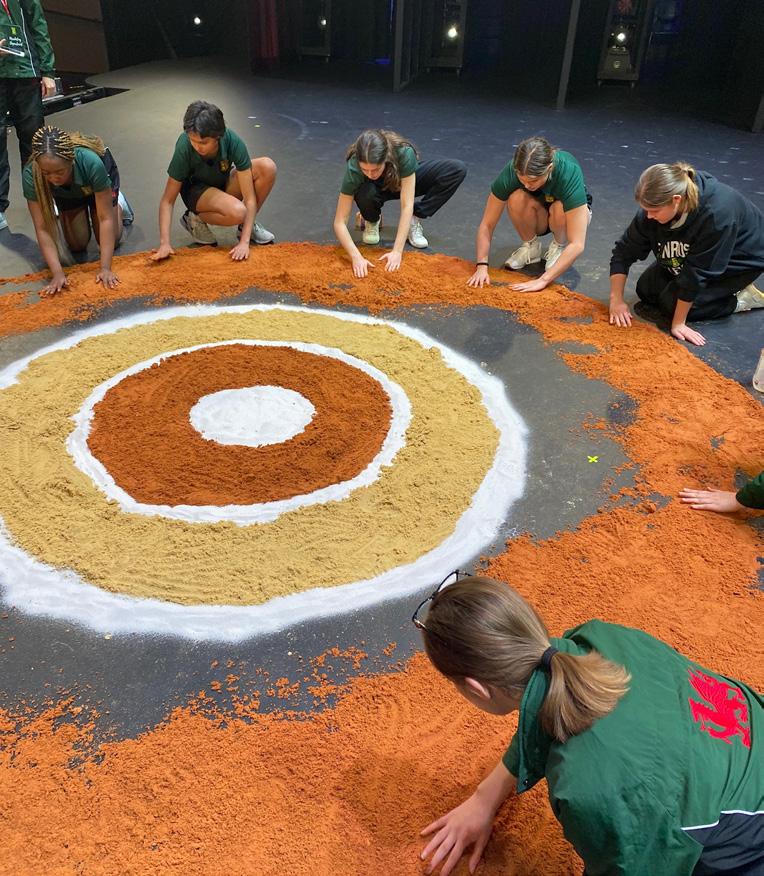
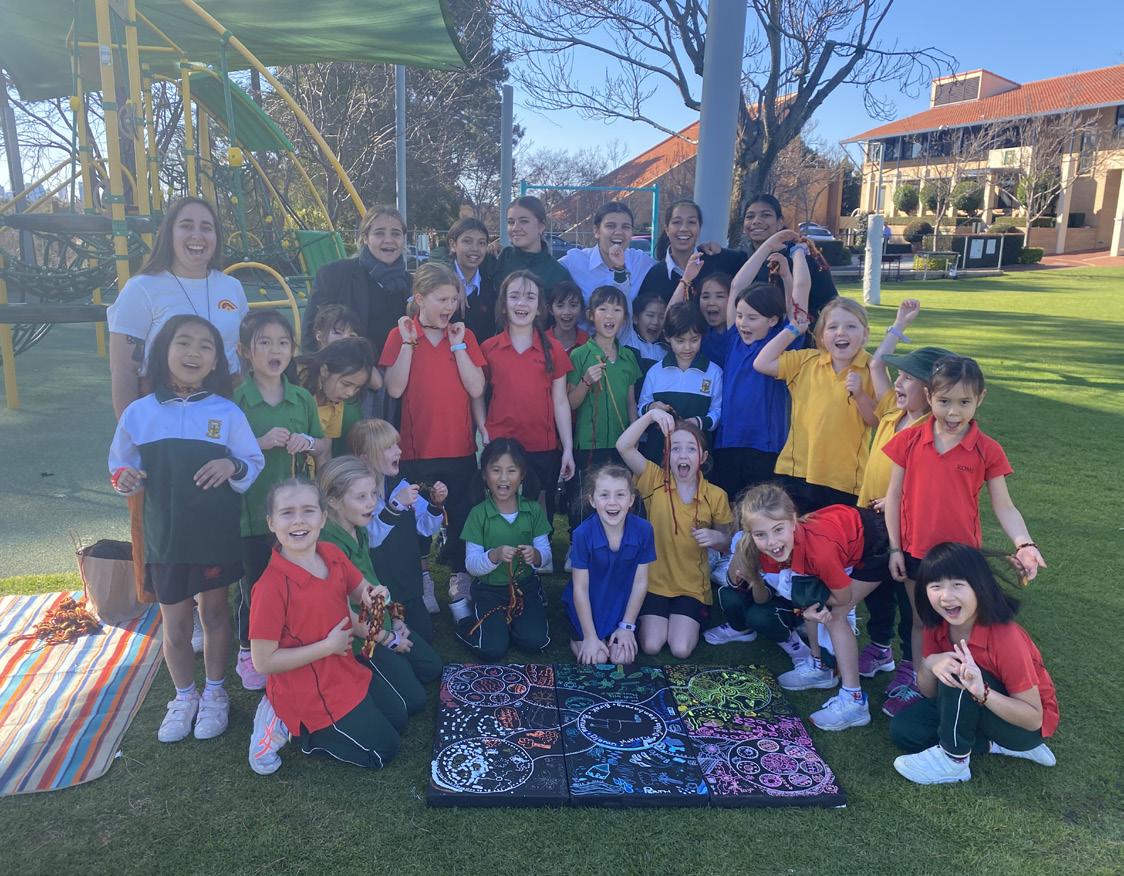
Staff engagement with RAP
Commitment to the Reconciliation Action Plan (RAP) from all staff is essential for developing a RAP that is implemented in a meaningful and sustainable way. All staff will be involved in the ongoing development and implementation of our RAP through staff development opportunities facilitated by the RAP Working Group.
RAP budget allocation
We have set aside dedicated funds from within our budget to procure relevant goods and services that strengthen the sustainability of our RAP Actions. Staff are aware that it is important to consider remuneration for people who have been involved in RAP initiatives out of respect for the time and resources that they have contributed.
19
OPPORTUNITIES AROUND THE SCHOOL
OPPORTUNITIES WITH THE COMMUNITY

RAP Actions Commitment
Employment strategy
We commit to the development and implementation of an Aboriginal and Torres Strait Islander employment strategy. This will assist in attracting Aboriginal and Torres Strait Islander candidates to vacancies, as well as supporting current Aboriginal and Torres Strait Islander employees.
Celebrate RAP progress
We are committed to reflecting on the progress made in the growth of knowledge and pride in Aboriginal and Torres Strait Islander histories, cultures and contributions in our school. We will track the progress of our RAP, continually revisit our commitments, and celebrate our achievements, while generating new ideas to develop and sustain our RAP into the future.
Support Aboriginal and Torres Strait Islander owned businesses
We promote supplier diversity and support Aboriginal and Torres Strait Islander owned businesses and their employees through the procurement of goods and services related to our RAP, as well as our general business. We maintain a list of local, regional, state-based and national Aboriginal and Torres Strait Islander owned businesses to accompany procurement policies and procedures.
Aboriginal and Torres Strait Islander languages
We commit to providing students and children with a deeper knowledge and understanding of Aboriginal and Torres Strait Islander cultures and identities by learning about Aboriginal and Torres Strait Islander languages. We acknowledge the importance of language maintenance and revitalisation efforts and will provide students and children with opportunities to learn – or learn about – the First Language of their local area.
| Reflect Reconciliation Action Plan 2022 - 2023
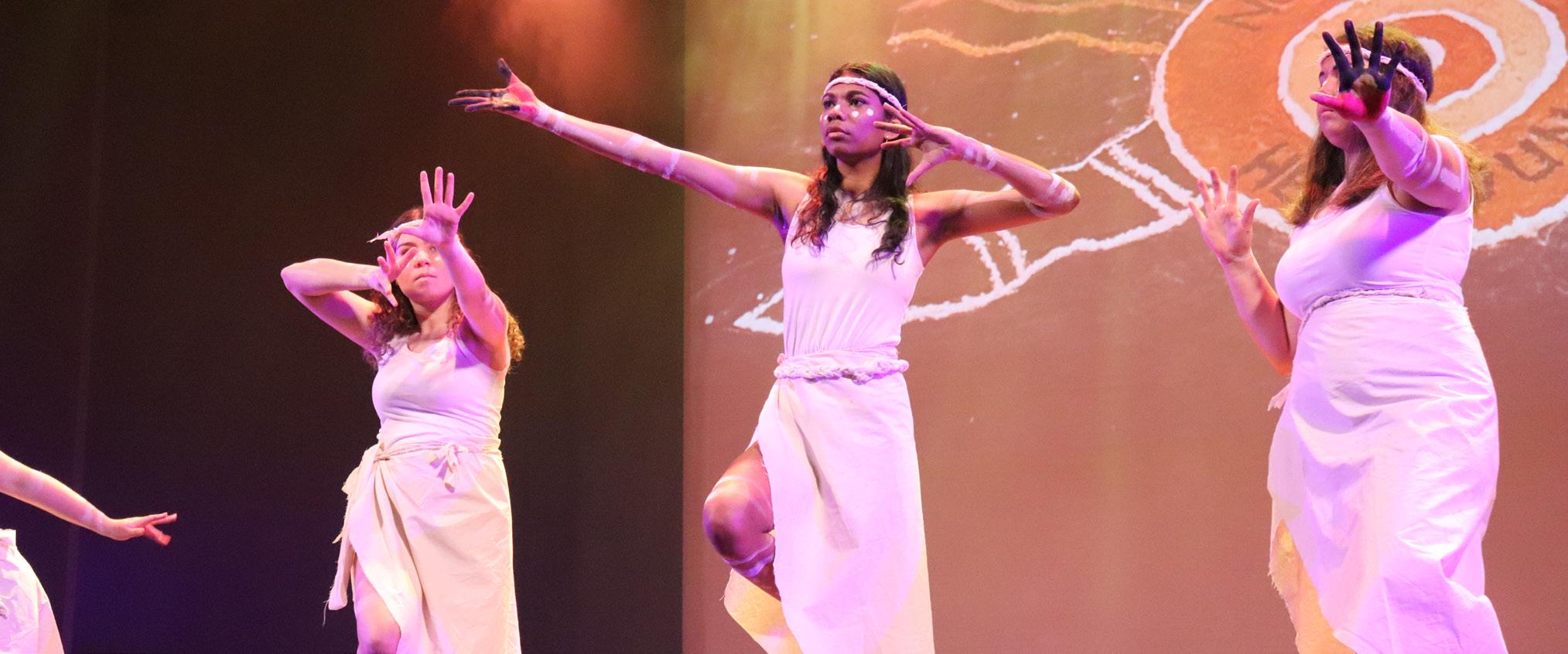
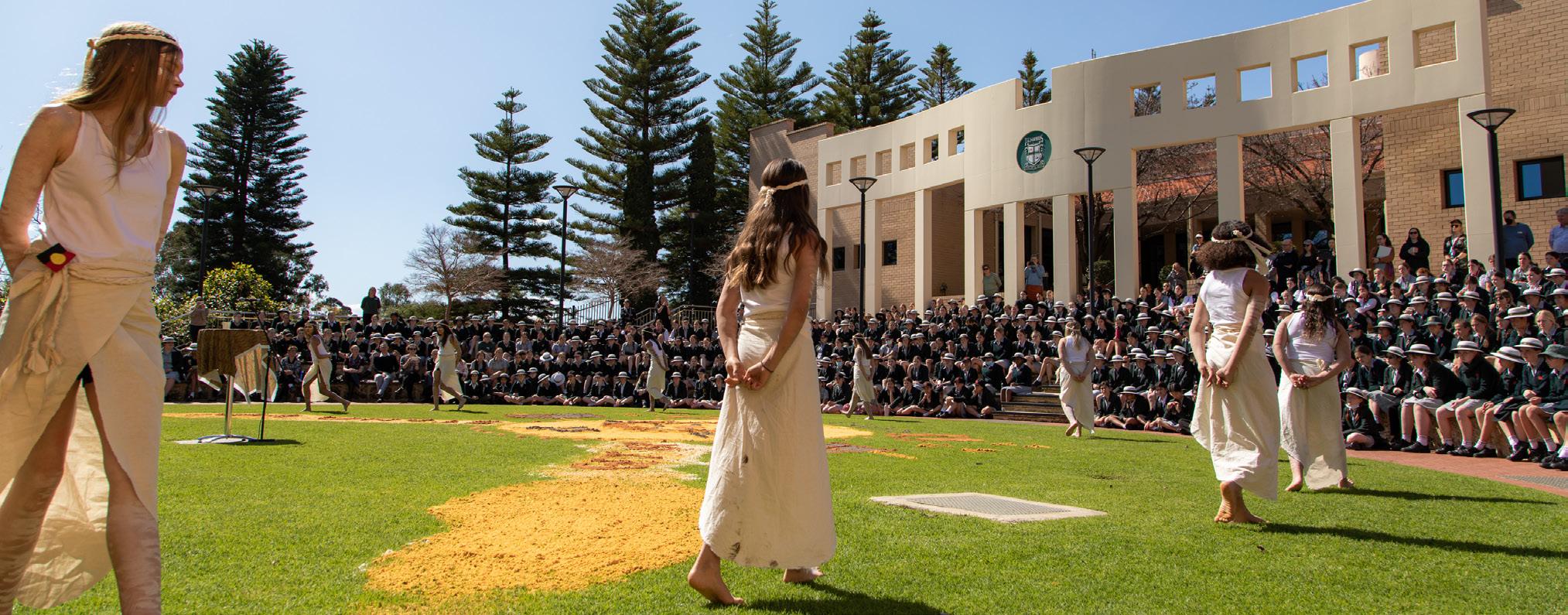
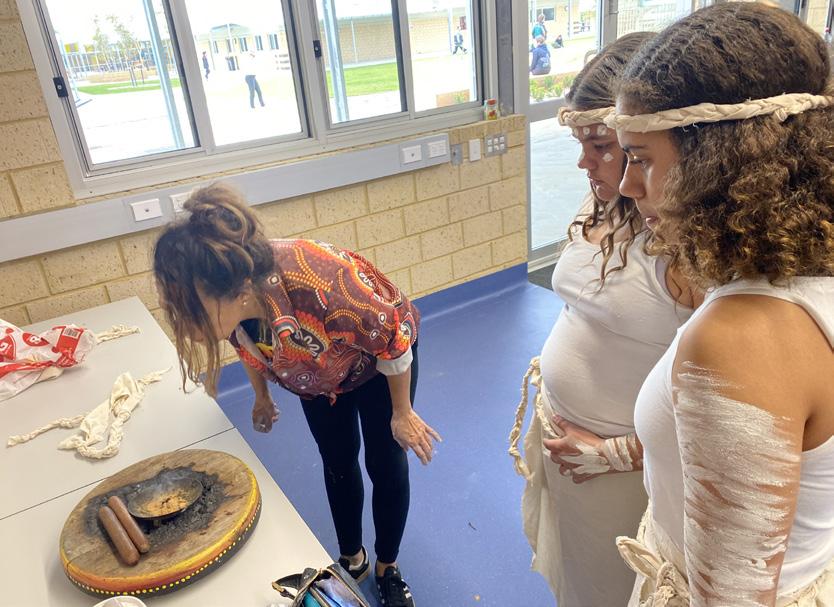
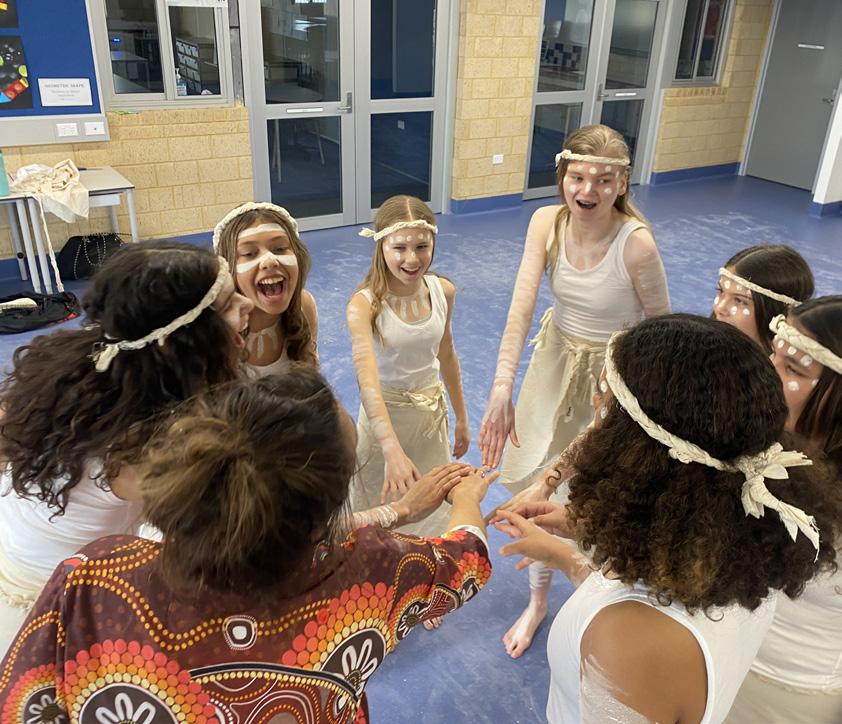
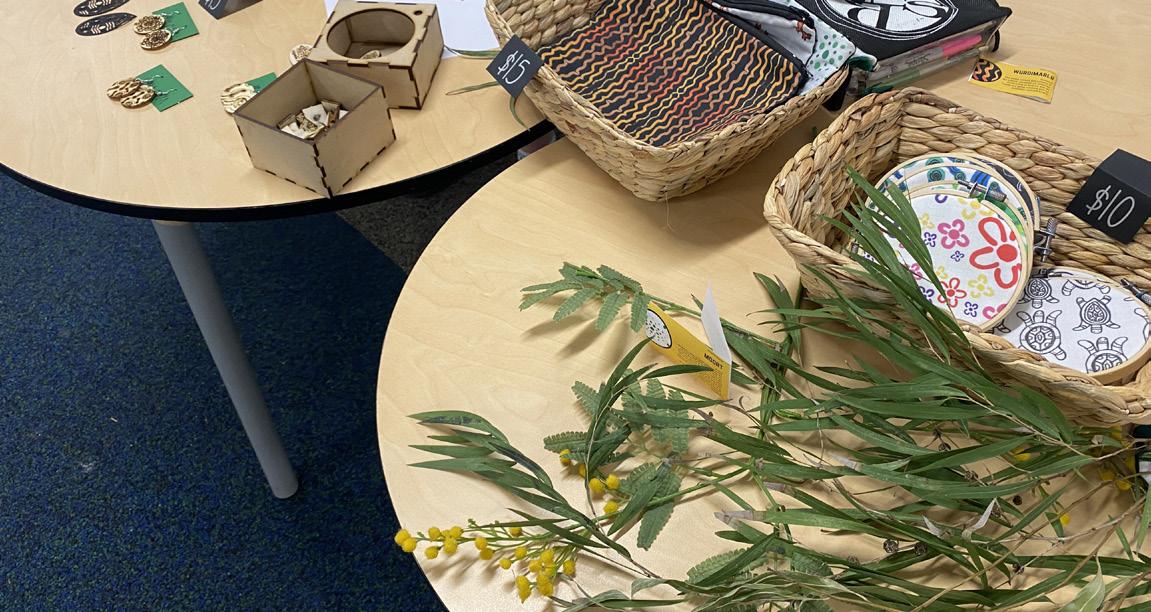
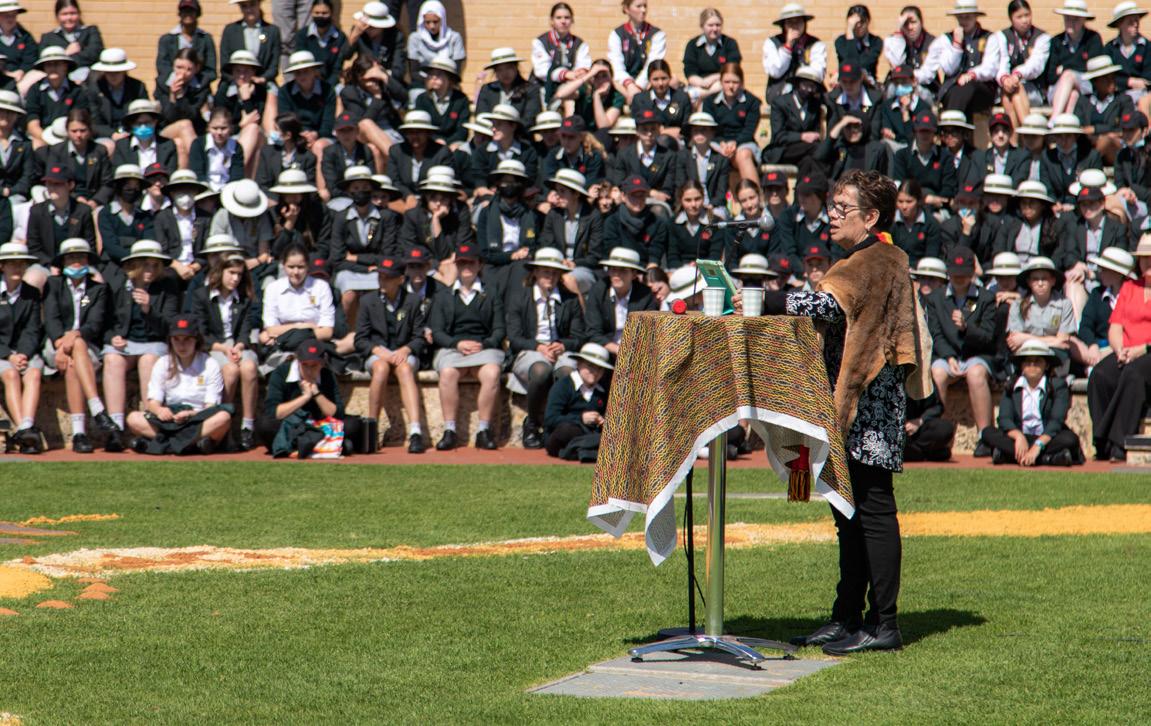
21
The Mparntwe Education Declaration: https://www.dese.gov.au/alice-springs-mparntwe-education-declaration
AITSL: Building a culturally responsive Australian teaching workforce https://www.aitsl.edu.au/teach/intercultural-development/building-a-culturally-responsiveaustralian-teaching-workforce
UN Declaration on the Rights of Indigenous peoples: http://www.un.org/development/desa/indigenouspeoples/wp-content/uploads/ sites/19/2018/11/UNDRIP_E_web.pdf
The Coolangatta Statement on Indigenous Rights in Education: https://www.jstor.org/stable/24398060
Cross-curriculum priority: SCSA https://k10outline.scsa.wa.edu.au/home/teaching/cross-curriculum-priorities2/aboriginal-andtorres-strait-islander-histories-and-cultures-aboriginal-and-torres-strait-islander-histories-andcultures
ACARA https://www.australiancurriculum.edu.au/f-10-curriculum/cross-curriculum-priorities/ aboriginal-and-torres-strait-islander-histories-and-cultures/
22 Penrhos College | Reflect Reconciliation Action Plan 2022 - 2023
LINKS
RECOMMENDED
Lake Perkolilli by Grace Dimer
This artwork is a representation of the lake that my dad used to go to with his family when he was younger, this is a special place for our family because this is our traditional Country. When I visited with Dad we saw emus, kangaroos and black swans. The water in the lake is brown from the dirt, the ground is red and cracked, and there are mountains and hills in the distance.
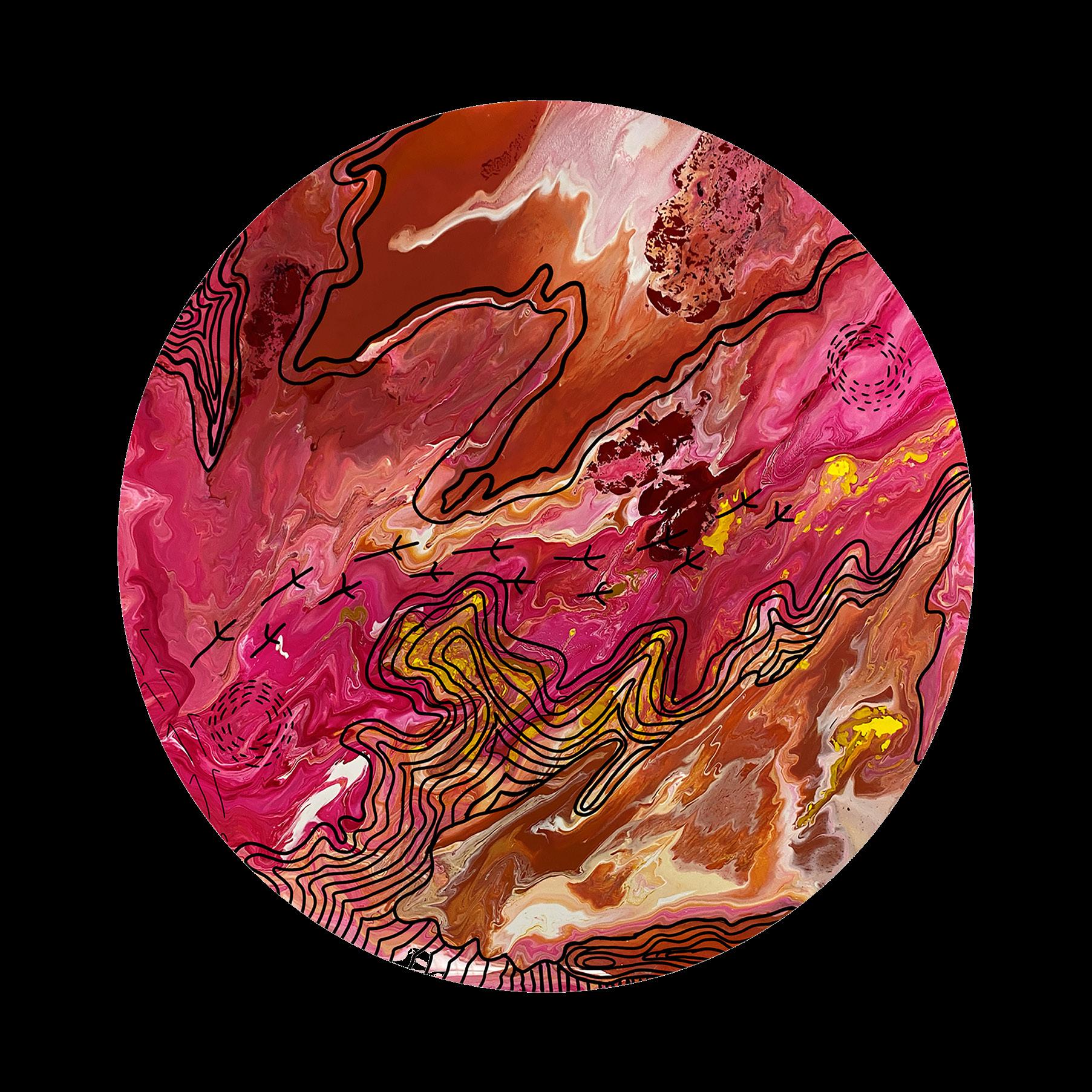
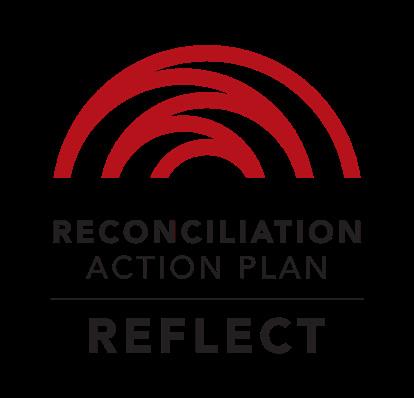
24 Penrhos College | Reflect Reconciliation Action Plan 2022 - 2023 6 Morrison Street Como Western Australia 6152 Locked Bag 690 Como Western Australia 6952 Telephone: (08) 9368 9500 Facsimile: (08) 9368 9677 Email: feedback@penrhos.wa.edu.au Website: www.penrhos.wa.edu.au Penrhos College is a Uniting Church day and boarding school for girls, Pre-Kindergarten to Year 12













































